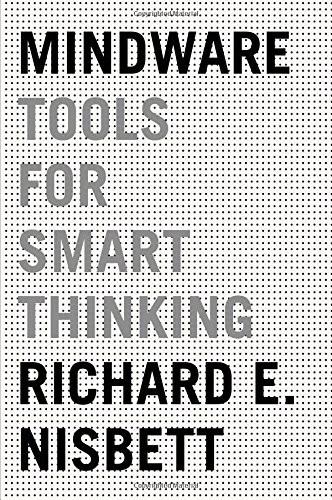
Mindware: Tools for Smart Thinking
by
Richard E. Nisbett
Published 17 Aug 2015
The failure to recognize the importance of contexts and situations and the consequent overestimation of the role of personal dispositions is, I believe, the most pervasive and consequential inferential mistake we make. The social psychologist Lee Ross has labeled this the fundamental attribution error. As it happens, there are big cultural differences in propensity to make this error. This fact offers the hope that people in more susceptible cultures may be able to overcome the error to some degree. The Fundamental Attribution Error Bill Gates is the richest person in the world. At the ripe old age of nineteen, Gates dropped out of Harvard to start Microsoft, and in a few short years he made it the most profitable corporation in the world.
…
As the communications theorist Robert Logan has written, the Greeks were enslaved to the rigid linearity of their either/or logic.11 The Greek insistence on an unchanging or highly stable world echoes down through the centuries. The extreme Western insistence on attributing human behavior to a person’s enduring dispositions rather than to situational factors—the fundamental attribution error—is directly traceable to Greek metaphysics. One of the clearest examples of the damage done by the fundamental attribution error has to do with Western (mis)understanding of some important influences on intelligence and academic achievement. I began to have trouble with math in the fifth grade. My parents assured me that was to be expected: Nisbetts had never been much good at math.
…
People’s dispositions, on the other hand—their distinctive traits, attitudes, abilities, and tastes—are much less influential than we assume. So we make mistakes in assessing why it is that people—including ourselves—believe particular things and behave in particular ways. But it’s possible to overcome this “fundamental attribution error” to a degree. Finally, psychologists have increasingly come to recognize the importance of the unconscious mind, which registers vastly more environmental information than the conscious mind could possibly notice. Many of the most important influences on our perceptions and behavior are hidden from us.
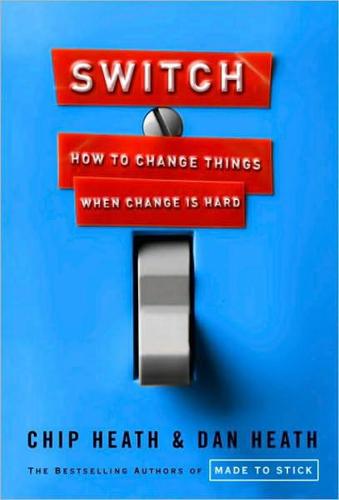
Switch: How to Change Things When Change Is Hard
by
Chip Heath
and
Dan Heath
Published 10 Feb 2010
In a famous article, Stanford psychologist Lee Ross surveyed dozens of studies in psychology and noted that people have a systematic tendency to ignore the situational forces that shape other people’s behavior. He called this deep-rooted tendency the “Fundamental Attribution Error.” The error lies in our inclination to attribute people’s behavior to the way they are rather than to the situation they are in. The Fundamental Attribution Error complicates human relationships. Marriage therapist Michele Weiner-Davis said, “Most people attribute their marital problems to some deeply engrained personality characteristics of their spouse.” A wife might say, “My husband is a stubborn person.”
…
Edwards Deming. See Deming (1982), Out of the Crisis. Boston: Massachusetts Institute of Technology Center for Advanced Engineering Study. The fires story is on p. 325. Fundamental Attribution Error. See Lee Ross (1977), “The Intuitive Psychologist and His Shortcomings: Distortions in the Attribution Process,” in L. Berkowitz (ed.), Advances in Experimental Social Psychology (vol. 10), New York: Academic Press. Echoes of the Fundamental Attribution Error are found in the conventional wisdom of many fields. Marketers talk about finding the right psychographic for a consumer good. Health psychologists talk about the importance of targeting people who are “ready” to stop smoking.
…
The stubbornness emerges mainly when you suggest a new approach with the kids at home—and when you do that, he is stubborn almost every time. It’s the situation, not an immutable stubbornness built into his character, that produces the behavior.” (This doesn’t excuse his stubbornness, of course, but it should provide hope for a solution, since situations should be easier to tweak than people’s core character.) The Fundamental Attribution Error is the reason why we love TV shows like The Dog Whisperer or Supernanny, in which seemingly irredeemable dogs and kids are tamed by outsiders who come in with a new system of discipline. At the beginning of the episodes, we’re presented with a dog that bites everything in sight, or a child who won’t obey the simplest of commands, and we simply can’t avoid jumping to conclusions about their character: That dog is vicious.
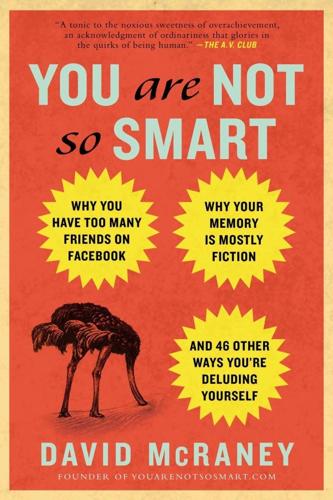
You Are Not So Smart
by
David McRaney
Published 20 Sep 2011
When told she had been asked to give a positive report, the men said although they knew she was just doing her job, they felt that she really did like them. You commit the fundamental attribution error by believing other people’s actions burgeon from the sort of people they are and have nothing to do with the setting. When a man believes the stripper really likes him, or when the boss thinks all his employees love to hear his stories about fishing in Costa Rica, that’s the fundamental attribution error. It’s hard to grasp just how powerful a situation can be, how much it can influence the behavior of you and people you think you know pretty well.
…
Table of Contents Title Page Copyright Page Dedication Introduction Chapter 1 - Priming Chapter 2 - Confabulation Chapter 3 - Confirmation Bias Chapter 4 - Hindsight Bias Chapter 5 - The Texas Sharpshooter Fallacy Chapter 6 - Procrastination Chapter 7 - Normalcy Bias Chapter 8 - Introspection Chapter 9 - The Availability Heuristic Chapter 10 - The Bystander Effect Chapter 11 - The Dunning-Kruger Effect Chapter 12 - Apophenia Chapter 13 - Brand Loyalty Chapter 14 - The Argument from Authority Chapter 15 - The Argument from Ignorance Chapter 16 - The Straw Man Fallacy Chapter 17 - The Ad Hominem Fallacy Chapter 18 - The Just-World Fallacy Chapter 19 - The Public Goods Game Chapter 20 - The Ultimatum Game Chapter 21 - Subjective Validation Chapter 22 - Cult Indoctrination Chapter 23 - Groupthink Chapter 24 - Supernormal Releasers Chapter 25 - The Affect Heuristic Chapter 26 - Dunbar’s Number Chapter 27 - Selling Out Chapter 28 - Self-Serving Bias Chapter 29 - The Spotlight Effect Chapter 30 - The Third Person Effect Chapter 31 - Catharsis Chapter 32 - The Misinformation Effect Chapter 33 - Conformity Chapter 34 - Extinction Burst Chapter 35 - Social Loafing Chapter 36 - The Illusion of Transparency Chapter 37 - Learned Helplessness Chapter 38 - Embodied Cognition Chapter 39 - The Anchoring Effect Chapter 40 - Attention Chapter 41 - Self-Handicapping Chapter 42 - Self-Fulfilling Prophecies Chapter 43 - The Moment Chapter 44 - Consistency Bias Chapter 45 - The Representativeness Heuristic Chapter 46 - Expectation Chapter 47 - The Illusion of Control Chapter 48 - The Fundamental Attribution Error Acknowledgements BIBLIOGRAPHY DUTTON Published by Penguin Group (USA) Inc. 375 Hudson Street, New York, New York 10014, U.S.A. Penguin Group (Canada), 90 Eglinton Avenue East, Suite 700, Toronto, Ontario M4P 2Y3, Canada (a division of Pearson Penguin Canada Inc.) • Penguin Books Ltd, 80 Strand, London WC2R 0RL, England • Penguin Ireland, 25 St.
…
Like a billion rolls of a trillion dice, the factors at play are too complex, too random to truly manage. You can no more predict the course of your life than you could the shape of a cloud. So seek to control the small things, the things that matter, and let them pile up into a heap of happiness. In the bigger picture, control is an illusion anyway. 48 The Fundamental Attribution Error THE MISCONCEPTION: Other people’s behavior is the reflection of their personality. THE TRUTH: Other people’s behavior is more the result of the situation than their disposition. You go to a restaurant and your server brings back something you didn’t order. When you send it back, it takes forever for them to return with the correct dish.
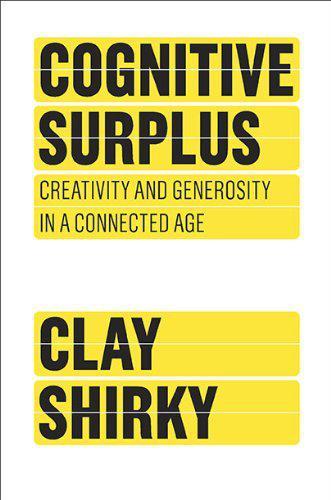
Cognitive Surplus: Creativity and Generosity in a Connected Age
by
Clay Shirky
Published 9 Jun 2010
You’d think this transformation would have broken people of their faith in such generalizations, but the desire to attribute people’s behavior to innate character rather than to local context runs deep. It runs so deep, in fact, that psychologists have a name for it: the fundamental attribution error. The fundamental attribution error is at work when we explain our own behavior in terms of the constraints on us (“I didn’t stop to help the stranded driver because I was late for work”) but attribute the same behavior in others to their character (“He didn’t stop to help the stranded driver because he’s selfish”). Similarly, we fell into the fundamental attribution error when we thought Gen Xers weren’t working hard because they were lazy. Theories of generational difference make sense if they are expressed as theories of environmental difference rather than of psychological difference.
…
Theories of generational difference make sense if they are expressed as theories of environmental difference rather than of psychological difference. People, especially young people, will respond to incentives because they have much to gain and little to lose from experimentation. To understand why people are spending so much time and energy exploring new forms of connection, you have to overcome the fundamental attribution error and extend to other people the set of explanations that you use to describe your own behavior: you respond to new opportunities, and so does everybody else, and these changes feed on one another, amplifying some kinds of behavior and damping others. People in my generation and older often tut-tut about young people’s disclosing so much of their lives on social networks like Facebook, contrasting that behavior with our own relative virtue in that regard: “You exhibitionists!
…
This comparison conveniently ignores the fact that we didn’t behave that way because no one offered us the opportunity (and from what I remember of my twenties, I think we would have happily behaved that way if we’d had the chance). The generational explanations of Napster’s success fall apart because of the fundamental attribution error. The recording industry made that error when it became convinced that young people were willing to share because their generation was morally inferior (a complaint with obvious conceptual appeal to the elders). This thesis never made sense. If young people had become generally lawless, we’d expect to see a rise not just in sharing music but also in shoplifting and other forms of theft.
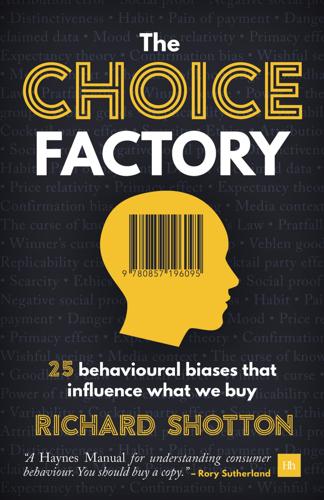
The Choice Factory: 25 Behavioural Biases That Influence What We Buy
by
Richard Shotton
Published 12 Feb 2018
No responsibility for loss occasioned to any person or corporate body acting or refraining to act as a result of reading material in this book can be accepted by the Publisher, by the Author, or by the employers of the Author. Contentsx Praise for The Choice Factory Preface Introduction Bias 1: The Fundamental Attribution Error Bias 2: Social Proof Bias 3: Negative Social Proof Bias 4: Distinctiveness Bias 5: Habit Bias 6: The Pain of Payment Bias 7: The Danger of Claimed Data Bias 8: Mood Bias 9: Price Relativity Bias 10: Primacy Effect Bias 11: Expectancy Theory Bias 12: Confirmation Bias Bias 13: Overconfidence Bias 14: Wishful Seeing Bias 15: Media Context Bias 16: The Curse of Knowledge Bias 17: Goodhart’s Law Bias 18: The Pratfall Effect Bias 19: Winner’s Curse Bias 20: The Power of the Group Bias 21: Veblen Goods Bias 22: The Replicability Crisis Bias 23: Variability Bias 24: Cocktail Party Effect Bias 25: Scarcity Ethics Conclusion References Further reading Acknowledgements Index Praise for The Choice Factory “This book is a Haynes Manual for understanding consumer behaviour.
…
Yet, when we watch how consumers actually behave, it’s apparent that we are affected by such nuances. While ignoring behavioural science is bad news for the industry it is good news for you. It means that if you apply the findings then you’ll have a competitive advantage. Let’s turn to some of those lessons now. Bias 1: The Fundamental Attribution Error Why brands need target contexts as much as target audiences You slam your front door closed and trudge towards your car, which owing to a lack of off-street parking is a hundred yards away. In between you and the car is a beggar, slumped in a doorway. A stream of busy commuters walks past him without stopping.
…
You watch as a man, dressed in a pinstripe suit, picks up his pace, averts his gaze and strides past the vagrant. Good god – people are so selfish today, you think. You root around in your pocket for some change to donate. There’s only a fiver so you pick up your pace and avert your gaze. Your assumption about the selfishness of the businessman is an example of the fundamental attribution error. That’s the tendency to overestimate the importance of personality, and underestimate that of context, when explaining behaviour. You judged the businessman’s actions with reference to his personality rather than fleeting factors like his mood, busy-ness or mindset. This mistake is widespread and has important implications for how we think about targeting our communications.
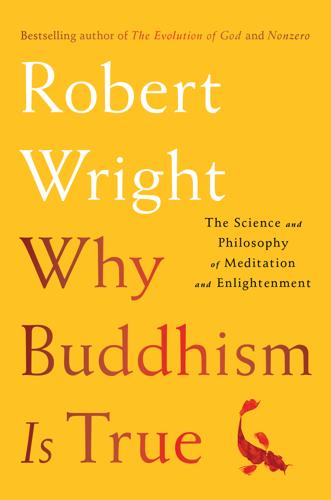
Why Buddhism is True
by
Robert Wright
This experiment fits into a large body of psychological literature about something called “the fundamental attribution error.” The word attribution refers to the tendency to explain people’s behavior in terms of either “dispositional” factors—in other words, the kind of person they are—or “situational” factors, like whether they happen to be late for a talk. The word error refers to the fact that these attributions are often wrong, that we tend to underestimate the role of situation and overestimate the role of disposition. In other words, we’re biased in favor of essence. The term fundamental attribution error was coined in 1977 by the psychologist Lee D.
…
Rather, they place themselves, and are placed by others, in situations that differ precisely in ways that induce clergy to look, act, feel, and think rather consistently like clergy and that induce criminals to look, act, feel, and think like criminals.” The philosopher Gilbert Harman, after reviewing the literature on the fundamental attribution error, raised questions about the very existence of such character traits as honesty, benevolence, and friendliness. “Since it is possible to explain our ordinary belief in character traits as deriving from certain illusions,” he wrote, “we must conclude that there is no empirical basis for the existence of character traits.”
…
Yet I did not consider myself bad—at least, not essentially bad—even on later reflection. One reason I let myself off the hook is that I understand that the stress caused my bad behavior; it wasn’t the “real me” who did the bad thing. But with other people, I’m less likely to ponder that possibility. That’s what the fundamental attribution error is: I attribute their behavior to disposition, not situation; I locate the badness in them, not in environmental factors. Why would the human mind be designed to ignore or downplay situational factors when sizing people up? Well, for starters, remember that natural selection didn’t design human minds to size people up accurately.
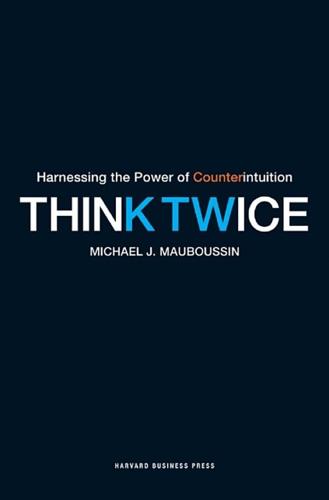
Think Twice: Harnessing the Power of Counterintuition
by
Michael J. Mauboussin
Published 6 Nov 2012
Researchers have done the Asch experiment over a hundred times in nearly twenty countries and have found similar conformity levels across geographies. Of course, conformity is also at the core of the diversity breakdowns that lead to unhealthy crowd behavior. Lee Ross, a social psychologist at Stanford University, coined the term “fundamental attribution error” to describe the tendency to explain behavior based on an individual’s disposition versus the situation. We naturally associate bad behavior with poor character, except when we assess our own behavior. We more readily explain our own poor behavior as a reflection of the social circumstances.8 Perhaps the most disconcerting aspect of situational power is that it can work for evil as well as for good.
…
They found that the Western press focused largely on the flaws and problems of the perpetrators (“very bad temper,” “mentally unstable”), while the Eastern press emphasized the relationships and social context (“did not get along with his adviser,” “influenced by the example of a recent mass slaying in Texas”). Follow-up queries of American and Chinese college students yielded identical perceptions. While all people are susceptible to the fundamental attribution error to some degree, the propensity is clearly different between Eastern and Western cultures.10 Some Wine with Your Music? Imagine strolling down the supermarket aisle and coming upon a display of French and German wines, roughly matched for price and quality. You do some quick comparisons, place a German wine in your cart, and continue shopping.
…
Jerry Burger, a psychologist at Santa Clara University, recently completed a modified version of the experiment with results similar to those of Milgram nearly a half-century earlier.23 Milgram’s experiment draws out this chapter’s final mistake: explaining behavior by focusing on people’s dispositions, rather than considering the situation. This is a restatement of the fundamental attribution error. The vital point is that the situation is generally much more powerful than most people—especially Westerners—acknowledge. The combination of the sense of group and the setting lays the groundwork for behavior that can deviate substantially from the norm. Philip Zimbardo, a psychologist at Stanford University, did an experiment in 1971 that ranks with Asch and Milgram in exhibiting the power of the situation.
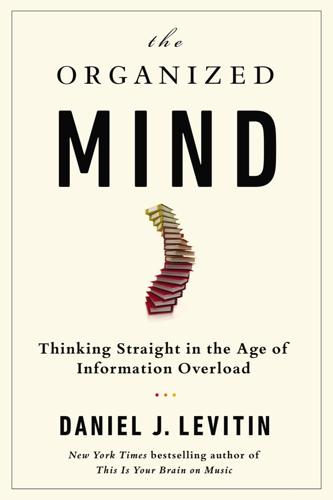
The Organized Mind: Thinking Straight in the Age of Information Overload
by
Daniel J. Levitin
Published 18 Aug 2014
Journal of Personality and Social Psychology, 35(7), 485–494, p. 485. the cognitive illusion of the fundamental The fundamental attribution error has received lots of critiques, including that social, and not just inferential processes are at work, see, e.g. Gawronski, B. (2004). Theory-based bias correction in dispositional inference: The fundamental attribution error is dead, long live the correspondence bias. European Review of Social Psychology, 15(1), 183–217. and also, it may be unique to Western culture, reflecting an individualist bias: Clarke, S. (2006). Appealing to the fundamental attribution error: Was it all a big mistake? In D. Coady (Ed.), Conspiracy theories: The philosophical debate (pp. 130–140).
…
There have been dozens of demonstrations of people making incorrect predictions, overweighting the influence of traits and undervaluing the power of the situation when attempting to explain people’s behavior. This cognitive illusion is so powerful it has a name: the fundamental attribution error. An additional part of the fundamental attribution error is that we fail to appreciate that the roles people are forced to play in certain situations constrain their behavior. In a clever demonstration of this, Lee Ross and his colleagues staged a mock game show at Stanford. Ross plucked a handful of students from his classroom and randomly assigned half of them to be Questioners and half to be Contestants in a trivia game.
…
No right-minded Questioner would ask a question that he didn’t already know the answer to, and because he was encouraged to generate difficult and obscure questions, it was unlikely the Contestant would know many of the answers. Not only was the game rigged, but so were the mental reactions of the participants—indeed, the mental responses of all of us. We succumb to the cognitive illusion of the fundamental attribution error regularly. Knowing that it exists can help us to overcome it. Suppose you’re walking down the halls of your office and pass a new coworker, Kevin. You say hello and he doesn’t respond. You could attribute his behavior to a stable personality trait and conclude that he is shy or that he is rude.

Spies, Lies, and Algorithms: The History and Future of American Intelligence
by
Amy B. Zegart
Published 6 Nov 2021
As recounted in chapter 4, estimates about whether they had found the al Qaeda leader ranged from 40 to 95 percent.61 Those who had lived through the intelligence failure of overestimating Saddam’s WMD programs were more skeptical of the intelligence and issued lower probability estimates that the Pacer was bin Laden, while those coming off recent counterterrorism successes put more stock in the intelligence and issued more optimistic assessments.62 What you predict depends on what you’ve experienced. The Fundamental Attribution Error The fundamental attribution error is the tendency to believe that others behave badly because of their personality while we ourselves behave badly because of factors beyond our control. People often jump to blaming others while letting themselves off the hook. Drivers think that someone cutting them off must be a jerk rather than wondering if there’s an emergency or some other reason requiring them to drive that way.
…
Drivers think that someone cutting them off must be a jerk rather than wondering if there’s an emergency or some other reason requiring them to drive that way. College students often say “I got an A!” when they do well in a course but “The professor gave me a C!” when they do poorly. In foreign policy, the fundamental attribution error fuels misperception. As Kahneman and Renshon wrote: A policymaker or diplomat involved in a tense exchange with a foreign government is likely to observe a great deal of hostile behavior by that country’s representatives. Some of that behavior may indeed be the result of deep hostility. But some of it is simply a response to the current situation as it is perceived by the other side.
…
See also biases, and data analysis Angleton, James Jesus, 160–64 Apple: and big data, 8; and encryption of data, 222–23; founding of, 121; influence on U.S. policy, 75; refusal to cooperate with government, 222–23 Arnold, Benedict, 44, 52, 54, 155 artificial intelligence (AI): challenges created by, 2; and competition for advantage, 141; and deepfake audio and video, 223, 243–46, 268; and improved data analysis, 139–41, 235–36; limitations of, 140; obstacles to adoption of, 140–41; professors of, leaving for industry, 27 The Art of War (Sun Tzu), 45, 79 asymmetric information: and analysis of intelligence data, 113–15; as barrier to congressional oversight of IC, 207–12 availability bias, 122–23 al-Awlaki, Anwar, 31, 169–71, 337n10, 347n161 AZORIAN, operation, 7 Baer, Robert, 92 Bash, Jeremy, 103, 104 Bay of Pigs operation (1961), 64, 174, 182 Bearden, Milt, 184 Bennett, Gina, 91–92, 93, 94, 95, 96 biases, and data analysis, 117–30; availability bias, 122–23; confirmation bias, 103–4, 118–21; framing biases, 126–29; fundamental attribution error, 123–24; groupthink, 129–30; identifying bias, as insufficient remedy, 131; mental shortcut errors, 117–18; mirror imaging, 124–26; optimism bias, 121–22. See also analysis of intelligence data bin Laden, Osama: CIA plan to capture, 69, 205; escape from Tora Bora, 99; long search for, 98, 99–103; near capture of, after 9/11, 99; pre-9/11 intelligence on, 69, 205; role in 9/11 attacks, 79; and U.S. laws against assassination, 191 bin Laden, killing of, 78, 106–7; analysis of intelligence data, 103–5; choice of covert action for, 105–6, 320n159; and deniability, 181; intelligence leading to, 77–78, 86, 100–102; as intelligence success, 21; and open-source intelligence, 5–6; secrecy surrounding operation, 94; uncertainty of identification, 77, 102, 104–5; Zero Dark Thirty film about, 27–28 biology, synthetic, challenges created by, 3 Black, Cofer, 171, 214 Black Chamber, 46, 59–60, 304n13 Black Tom explosion, 58 Bletchley Park codebreakers, 46 Bond, James, 23, 26 Brennan, John, 10, 89–90, 120, 122, 195 British intelligence: history of, 46, 304n11; in U.S., 58 Bureau of Military Information, 56–57 Burr, Aaron, 53 Burr, Richard, 225f Bush, George H.
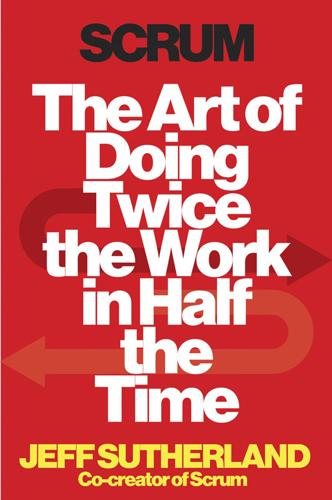
Scrum: The Art of Doing Twice the Work in Half the Time
by
Jeff Sutherland
and
Jj Sutherland
Published 29 Sep 2014
But I’d also be willing to bet that when you’re blaming someone, you’re finding fault with them personally, while if you are being blamed, you’re much more aware of the situational factors that led to the problem and why you acted the way you did. And you know what? When you’re talking about yourself, you’re absolutely right. When talking about others, though, you’re making one of the most common—and destructive—human errors in judging other people’s actions. It even has a name: “Fundamental Attribution Error.” Some fascinating studies related to this are laid out in the book Induction: Processes of Inference, Learning, and Discovery, by John H. Holland et al. One paper cited in the book was published in the early 1970s, so this isn’t new. This is old stuff that has been reproduced over and over and over again.
…
As they made their way across the school grounds, each seminarian passed someone moaning for help in a doorway. How many of the people who were told they had to hurry stopped to help? Ten percent. Of seminarians. Yet people want to blame individuals, not systems. It just feels better. The Fundamental Attribution Error appeals to our sense of justice. If we can blame someone else, we insulate ourselves from the possibility that we’d do the same thing—that we’re just as likely to press that button as anyone else, given the right circumstances. How does this error of blaming individuals rather than systems manifest in business?
…
That’s why I implemented the Happiness Metric in my company. It helps the team help its members become better people. It removes the causes of unhappiness systematically, carefully, and incrementally. It empowers people to change themselves and attaches an incentive to doing so. Remember the Fundamental Attribution Error? When you’re surrounded by assholes, don’t look for bad people; look for bad systems that reward them for acting that way. Then you use the Happiness Metric to fix it. In high school or college many of us studied the American psychologist Abraham Maslow’s “hierarchy of needs.” It laid out, in pyramid form, the needs that humans take care of first and then those that become more pressing as lower ones are satisfied.
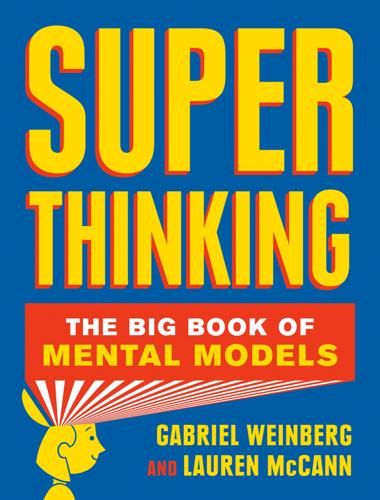
Super Thinking: The Big Book of Mental Models
by
Gabriel Weinberg
and
Lauren McCann
Published 17 Jun 2019
So the next time you send a message and all you get back is OK, consider that the writer is in a rush or otherwise occupied (the more likely interpretation) instead of coming from a place of dismissiveness. The third story, most respectful interpretation, and Hanlon’s razor are all attempts to overcome what psychologists call the fundamental attribution error, where you frequently make errors by attributing others’ behaviors to their internal, or fundamental, motivations rather than external factors. You are guilty of the fundamental attribution error whenever you think someone was mean because she is mean rather than thinking she was just having a bad day. You of course tend to view your own behavior in the opposite way, which is called self-serving bias.
…
People can also exhibit learned helplessness in everyday circumstances, believing they are incapable of doing or learning certain things, such as public speaking or using new technologies. In each of these cases, though, they are probably capable of improving their area of weakness if guided by the right mentor, a topic we cover in more detail later in Chapter 8. You don’t want to make a fundamental attribution error by assuming that your colleague is incapable of doing something when they really just need the proper guidance. All the mental models in this section—from the third story to learned helplessness—can help you increase your empathy. When applying them, you are effectively trying to understand people’s actual circumstances and motivations better, trying as best you can to walk a mile in their shoes.
…
KEY TAKEAWAYS To avoid mental traps, you must think more objectively. Try arguing from first principles, getting to root causes, and seeking out the third story. Realize that your intuitive interpretations of the world can often be wrong due to availability bias, fundamental attribution error, optimistic probability bias, and other related mental models that explain common errors in thinking. Use Ockham’s razor and Hanlon’s razor to begin investigating the simplest objective explanations. Then test your theories by de-risking your assumptions, avoiding premature optimization.
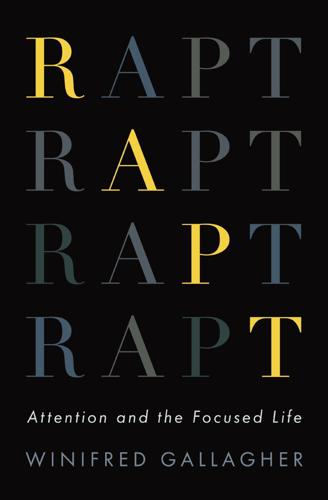
Rapt: Attention and the Focused Life
by
Winifred Gallagher
Published 9 Mar 2009
The risk is that as time passes, the rift between those parallel universes can grow: “That’s why you have to make the effort to come together and process your experiences jointly, so you really are paying attention to the same world.” Often, the all-too-natural tendency to see things only from your own point of view and to blame the other guy first can be traced to a “fundamental attribution error,” which undermines the common focus required to solve problems. Once you’re in the thrall of such a self-protective distortion, you see your mate’s behavior in terms of what kind of person he or she is. When you think of your own behavior, however, you see it in a larger, explicatory context.
…
If your partner has a crash, however, you think, or even say, “A maniac behind the wheel! Always tailgating!” As Bradbury puts it, “For you, the problem resulted from a situation that anyone would have responded to in that same way. But the other driver has no business being on the road.” Domestic life offers numerous opportunites to succumb to fundamental attribution errors. When your mate acts grouchy after dinner, you might silently or vociferously react thus: “Moody again! That’s just who you are. How did I ever end up with you?” A better plan, suggests Bradbury, would be to take a deep breath, then ask him about his day. He gets to vent about colleagues who haven’t been doing their fair share of the work, and you get to focus on the situation from his perspective, grasp the circumstances that constrain his behavior, and respond in a way that benefits you both.
…
lottery winners love unconditional LSD Lykken, David McCain, John McClelland, David McGinty, Joe MacLean, Paul magnetoencephalography (MEG) Marceau, Marcel Marcus Aurelius marriage attentional flexibility in balance of power in biased rose-colored vision in demand-withdraw pattern in fundamental attribution errors and housework and self-esteem differences in marriage counseling martial robots Maslow, Abraham Maugham, Somerset meaning meditation and virtues and meditation attentional training and health and mindfulness Meditations (Marcus Aurelius) memory as biased and unpredictable championship competition and improvement of orgasm and remembering vs. experiencing self and Mertz (robot) Merzenich, Michael Mesulam, Marsel meteoric mode of paying attention Meyer, David Michelangelo Michigan, University of Mies van der Rohe, Ludwig Milarepa Miller, Arthur Milton, John mind “mind/brain problem” mindfulness meditation and mindfulness-based stress reduction program (MBSR) Mindless Eating (Wansink) mind-wandering Mischel, Walter modafinil monks Morrison, Toni mothers motivation ADHD and dieting and emotions and grit and self-esteem and unconscious willpower and movies see also specific movies Mozart, Wolfgang Amadeus Multidimensional Personality Questionnaire (MPQ) multitasking Murray, Henry Murray, Sandra music, musicians alertness and childhood experience of creativity and leisure and mystery moods names, forgetting of narcissism National Institutes of Health nature motivation and see also genes, genetics negativity bias theory Neisser, Ulric Nelson, Horatio nervous system neurons, mirror neuroscience Newton, Isaac New York, N.Y.
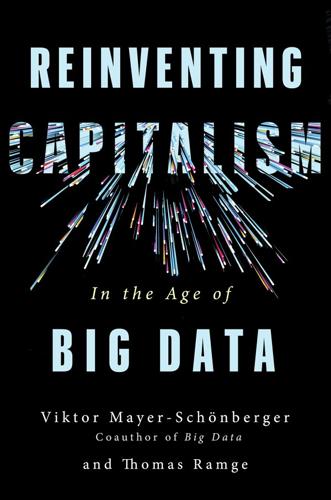
Reinventing Capitalism in the Age of Big Data
by
Viktor Mayer-Schönberger
and
Thomas Ramge
Published 27 Feb 2018
There is indeed evidence that some of us may be better at some aspects of assessing information than others. Studies have shown that men are more likely than women to exhibit confirmation bias—seeking out or putting more weight on information that confirms a preexisting belief. People from Western cultures are more prone than people from Asian cultures to the fundamental attribution error—believing that others’ performance and behavior derive from their personalities and temperaments rather than from the larger culture or environment. But these relative disadvantages only seem to assert themselves with respect to a single bias. There is also no direct relationship between intelligence and cognitive biases.
…
See also Daniel Kahneman, Thinking, Fast and Slow (New York: Farrar, Straus and Giroux, 2011); on how Kahneman and Tversky achieved their breakthrough insights, see Michael Lewis, The Undoing Project: A Friendship That Changed Our Minds (New York: W. W. Norton, 2016). confirmation bias: Yoram Bar-Tal and Maria Jarymowicz, “The Effect of Gender on Cognitive Structuring: Who Are More Biased, Men or Women?” Psychology 1, no. 2 (January 2010), 80–87, http://www.scirp.org/journal/PaperInformation.aspx?paperID=2096. fundamental attribution error: Incheol Choi and Richard E. Nisbett, “Situational Salience and Cultural Differences in the Correspondence Bias and Actor-Observer Bias,” Personality and Social Psychology Bulletin 24, no. 9 (September 1998), 949–960, http://journals.sagepub.com/doi/abs/10.1177/0146167298249003; Minas N.
…
See Great Recession/financial crisis financial intermediaries, 12, 146–156 choice expansion in, 215–216 payment solutions and, 146–147 regulations affecting, 139–140 traditional role of, 138–139 See also banks Finkel, Eli, 83, 84 Finland, 147, 191 fintechs, 11 banks investing in, 149–156 niche markets targeted by, 147, 152 worldwide investments in, 149 firms, 87–107, 109–131 Amazon as, 88–89, 106 automation in, 109, 111–112, 113–120, 128, 130–131 centralization in (see centralization) cognitive constraints and, 102–104 communicative coordination and, 26, 28–33, 90, 102 comparison of markets and, 28, 111 competition between markets and, 30, 107 decline in influence of, 12–13, 33 delegation in, 97–101, 106, 117 efficiency as focus of, 112–113 estimated number of, 28 human-centric, 214–215 internal talent management in, 126–129 intuition and heuristics in, 104–106 key difference between markets and, 32–33, 90 “noise” reduction strategies in, 100–101 organizational innovation in, 97, 110–111, 120–131 profits of, 195–197 reporting methods in, 90–97 rise in importance of, 33 shift to markets from, 10–11, 30–32, 125–126 structure of, 29–30 superstar, 195–197 tax credits for job creation proposed, 200–202 Flores, Fernando, 175–176 flying shuttle, 111 Forbes, 209 Ford, Henry, 29–30, 114 Ford Motor Company, 29–30, 31, 33, 98, 99–100 Fortune magazine, 208 Fox News, 178 Freightliner, 182 Friedman, Milton, 190 Fukoku Mutual Life Insurance, 109, 110–111, 113–114, 117, 120, 183, 188 fully automated luxury communism, 221 fundamental attribution error, 103 Funding Circle, 152, 163 Gates, Bill, 187 Gawande, Atul, 101 General Motors (GM), 98–99, 101 Germany, 134, 135, 136 gig economy, 186 Gigerenzer, Gerd, 105 Giza pyramids, 21 Glassdoor, 88 GoDaddy, 161 gold standard, 48 “Goobles,” 51 Google, 78, 110, 148, 151, 161, 196 antitrust case against, 165 feedback effects and, 30, 163, 169 prediction markets and, 50–51 Google Glass, 138 Google Shopping, 52 government, central planning for, 175–179 grain (as currency), 47 Great Depression, 51, 136 Great Famine (Soviet Union), 177 Great Recession/financial crisis, 134–135, 136, 215 See also subprime mortgage crisis Great Wall of China, 21, 24 Grünenthal, 42 Guardian, 221 Hagel, John, 31 Harvard Business Review, 99 Harvard Business School, 96 Harvard Medical School, 101 Harvard University, 45 Hayek, Friedrich August von, 39, 46–47 health care sector, 213–214 heuristics, 104–106 Higgs boson, 22 Hollerith, Herman, 96, 99 Holvi, 147 Honda, 30, 32 Huawei, 196 human choice.
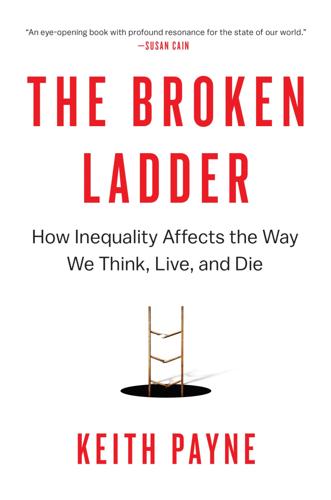
The Broken Ladder
by
Keith Payne
Published 8 May 2017
In other words, people seemed unable to take the situation into account, instead attributing the speech to the speaker’s beliefs even when that assumption flew in the face of logic. We are powerfully biased to look through the specifics of a given situation as if they were a pane of glass and to explain behavior based on the characteristics of a person. This bias has been replicated so many times that researchers took to calling it the “fundamental attribution error.” The fundamental attribution error applies in lots of contexts. The college graduate is smart. The drug addict is weak willed. The person shopping with food stamps is lazy. One reason it is so prevalent is that it is simply easier to think about people than situations. Later studies found that the tendency to neglect the situation was worse when people were distracted by doing a second task at the same time as they made their judgments.
…
Chapter 3: Poor Logic Venkatesh studied the economics of the drug trade: S. A. Venkatesh, Gang Leader for a Day: A Rogue Sociologist Takes to the Streets (New York: Penguin, 2008). classic experiment led by psychologist Ned Jones: E. E. Jones, “How Do People Perceive the Causes of Behavior?,” American Scientist 64 (1976): 300–305. “fundamental attribution error”: L. Ross, “The Intuitive Psychologist and His Shortcomings: Distortions in the Attribution Process,” Advances in Experimental Social Psychology 10 (1977): 173–220. Nature and nurture always work together: R. Sapolsky, “A Gene for Nothing,” Discover 18 (1997): 40–46. bred a population of about eight hundred fruit flies: S.
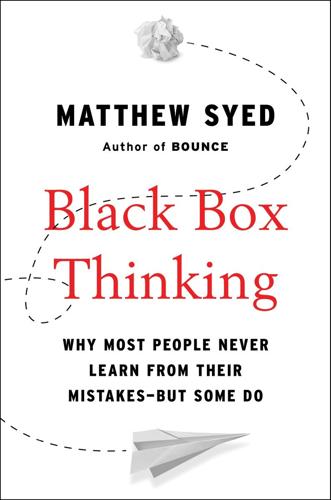
Black Box Thinking: Why Most People Never Learn From Their Mistakes--But Some Do
by
Matthew Syed
Published 3 Nov 2015
To most observers looking from the outside in, these do not register. It is not because they don’t think such possibilities are irrelevant, it is that often they don’t even consider them. The brain just plumps for the simplest, most intuitive narrative: “He’s a homicidal fool!” This is sometimes called by the rather inelegant name of the fundamental attribution error. It is only when the question is flipped—“What happened the last time you jumped lanes?”—that volunteers pause to consider the situational factors. “Oh, yeah, that was because I thought a child was about to run across the street!” Often these excuses are self-serving. But they are not always so.
…
This is not about being “soft,” but about learning what really went wrong. How much more important is it to engage in this kind of activity in a complex, interdependent system, like a hospital or business? It is noteworthy that even experienced aviation investigators fall prey to the fundamental attribution error. When they are first confronted with an accident, the sense-making part of the brain is already creating explanations before the black box has been discovered. This is why studies have shown that their first instinct is almost always (around 90 percent of the time) to blame “operator error.”
…
See Connelly, Peter (Baby P case) Bacon, Francis, 134n, 279, 280, 283 ballistic model of success, 145–46 Banja, John, 88–89 banking, 233 bankruptcy, 130 Barker, Steven, 236 Bayles, David, 140–41 Baylis, Trevor, 195 Becker, Jasper, 110 Beckham, David, 253–55, 265, 267, 274–76 Beebe, Rodrick, 21 Behavioural Insights Team (BIT), 291 Being Wrong (Schulz), 78 Berglas, Steven, 273–74 Berlinger, Nancy, 16, 90 Bernanke, Ben, 94–95, 98 Beyond Scared Straight (TV show), 166 Bible, the, 281 Birmingham Six, 117 black boxes, 8, 9, 25, 26, 221 black box thinking, 31 Blackstone, William, 65 Blair, Tony, 90–93, 94 blame, 12, 217–49 aviation and, 232, 239–49 cognitive dissonance and, 231 consequences of blame culture, 226–29, 231, 237–39 in corporate and political world, 225–31 fundamental attribution error and, 232 just culture and, 229–30 Libyan Arab Airlines Flight 114 and, 217–19, 221–25 media and, 234–35, 236–38 November Oscar incident and, 239–49 nursing/health care administration and, 226–27, 230–31 pervasiveness of, 225 politics and, 234 second victim and, 239 for social workers following Baby P case, 236–38, 239 Blind Watchmaker, The (Dawkins), 128 Blockbuster, 190 bloodletting, 13–14, 54, 154–56, 161–62 Boaler, Jo, 271, 272 Boeing B-17 bomber, 19, 54 bomber aircraft Boeing B-17 bomber, poor cockpit design of, 19, 54 Wald’s analysis of returning bomber aircraft, 35–37 Borchard, Edwin, 67 Boskin, Michael J., 95 Bounce (Syed), 45n Brailsford, Sir David, 171–73, 178, 179, 182, 183, 189 brainstorming, 196–97 Branson, Richard, 271 Brin, Sergey, 199 British Airways, 240, 241, 242, 246, 247 British Board of Trade, 56 Bromgard, Jimmy Ray, 77–79, 116 Bromiley, Adam, 4, 7, 294 Bromiley, Elaine, 3–7, 12, 15–16, 18, 28, 31, 60, 89, 292 Bromiley, Martin, 3–4, 6–7, 15–16, 18, 59–60, 292–94 Bromiley, Victoria, 4, 7, 294 Burns, Sir Terry, 98 Bush, George W., 73, 93, 111–12, 117 business blame and, 225–31 evolutionary, 129–31 mindset and, 259–61 randomized control trials (RCTs) and, 184–86 cadet training, at West Point, 261–63 Callace, Leonard, 69 Cameron, Julia, 200 Campbell, Alastair, 94 Campbell Collaboration, 164 Capello, Fabio, 135–36 Capital One, 185–86 capital punishment, 76 Carnot, Nicolas Léonard Sadi, 132 Catmull, Ed, 207, 208–9, 210 centrally planned economies, 130, 284 Chabris, Christopher, 117 Chapanis, Alphonse, 19 charities, 147–49 checklists, 30, 39, 53, 59 Chicago Convention, 224–25 China, 110, 271–72 Christianity, 279–80 Clinical Human Factors Group, 60, 293 clinical trials, 14 Clinton, Bill, 187 close crop planting, 110 closed loops, 13–14, 29–30, 58, 165 criminal justice system and, 66, 67 Iraq War decisions and, 93 justice system and, 85 randomized control trials (RCTs) and, 154–59 science and, 44 Cobley, Dan, 185 cognitive dissonance, 74–77, 86–107 ambiguity of failure and, 87 blame and, 231 confirmation bias and, 101–3 denial and, 74 disposition effect and, 101 economic forecasting and, 94–97 external versus internal deception and, 87, 88 health care and, 87–90, 103–7 initiation experiment and, 75–76, 86–87 Iraq War and, 90–94 justification and, 88–89, 90, 97–99 Lord’s capital punishment research project findings and, 76 reputation or influence of individual and, 98–100 responses to, 74 self-deception, 110–11 self-esteem and, 75–76 war, 278 wrongful convictions and, 79–83 collapsible stroller, 195, 199 Collins, Jim, 144, 204, 205, 206 communication, 28–29, 30, 39, 59 Communism, 108, 109, 110 complexity, 11 confirmation, 44 confirmation bias, 101–3, 280 connectivity, 199, 204 Connelly, Peter (Baby P case), 236–38, 239 Connelly, Tracey, 236 Conner, Aimee, 40 Convicting the Innocent and State Indemnity for Errors of Criminal Justice (Borchard), 67 Cook, Linda, 69 Corporate Creativity (Robinson & Stern), 179 counterfactual, 90n, 155, 157, 162, 165, 174, 175 court of criminal appeal, 67 cover-ups, 12–13, 88–89 Cowell, Andy, 182 Crandall, Bob, 179 creationism, 42–43 creative destruction, 130 Creativity, Inc.
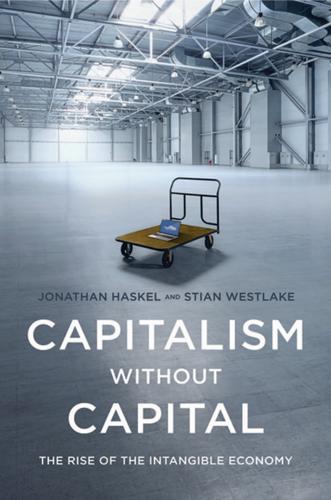
Capitalism Without Capital: The Rise of the Intangible Economy
by
Jonathan Haskel
and
Stian Westlake
Published 7 Nov 2017
As the economic journalist Chris Dillow3 likes to point out, humans are particularly prone to what psychologists call “fundamental attribution error”—the mistaken assumption that outcomes (such as how well a company does) are related to salient inputs (such as the skill of the CEO) rather than dumb luck or complex, hard-to-observe factors. A world in which increased intangible investment makes skilled managers a bit more important could easily lend fuel to the fire of fundamental attribution error, providing a rationale for powerful people like CEOs to increase their pay by more than the economic fundamentals of the change would justify.
…
What makes them different is in part their reputation, but also the very organization itself. So let us turn to the organization and, in particular, the role of management and leadership. Managing One reason for the celebrity status of managers is offered by the consistently fascinating blogger Chris Dillow,5 namely, the cognitive bias of “fundamental attribution error.” As we discussed in chapter 6, if people tend to relate the success of a company to its hero manager, rather than to general progress of technology or the state of the economy or the organizational capital embodied in the company itself, they may reward the manager too highly. Thus the manager or leader becomes the subject of a cargo cult.

Power, for All: How It Really Works and Why It's Everyone's Business
by
Julie Battilana
and
Tiziana Casciaro
Published 30 Aug 2021
Personal skills or attributes that help us gain power in one environment can actually harm our chances of gaining and keeping it in another.25 Why, then, do so many people believe power is a personal possession? Because we tend to personalize it. L’Homme Providentiel, or “the great man” who determines the course of events and the fate of masses, is a prominent figure in chronicles and legends throughout history.26 In the 1970s, psychologist Lee Ross coined the term “fundamental attribution error,” which refers to our bias to explain another person’s behavior by their personal qualities rather than any situational factors.27 The media, biographies, movies, and more perpetuate the idea that one person can naturally possess power and achieve greatness alone. This misconception is dangerous.
…
For a comprehensive list of locations of any word or phrase, use your reading system’s search function. 2008 financial crisis, 118, 126 48 Laws of Power, The (Greene), 19 Aakash’s story, 82–84 abuse of power, 21, 37, 43, 110–13 access to valued resources changing power balance, 8–13, 194 collective choices, 195 expanding networks for, 194 Ning’s story, 61, 63–64 personal data surveillance, 151–54 purposeful use of technology and, 148, 150 reclaiming democratic power, 197 Adbusters, 118 Age of Surveillance Capitalism, The (Zuboff), 152 agitation, 118–20, 137, 154, 195, 196, 238n7 agricultural revolution, 142 AI Now Institute, 160 Aladdin, x algorithms, 148–51, 153, 158–60 Alighieri, Dante, 41 Alinsky, Saul D., 20 Allegory of Good and Bad Government, The (Lorenzetti), 165 Allen, Danielle, 186 Alphabet Workers Union, 157–58 altruism, 26, 30–31, 36–38, 55, 196 Amazon, 112, 152, 153, 157, 159 Amnesty International, 156 Andersen, Lene Rachel, 187, 188, 258n83 Anderson, Cameron, 211n25, 212n10, 212n13, 230n12, 250n3 Anderson, Elizabeth, 177 antitrust legislation, 11, 159 apartheid, 117 Appiah, Kwame Anthony, 218n18, 220n34 Apple, 113, 151, 153, 157, 158 Arab Spring, 109, 117, 118 Ardern, Jacinda, 53–54 Arendt, Hannah, 96 Argentina’s marriage equality story, 131–37, 242n34 Argentine LGBT Federation, 133–37, 242n34 Aristotle, 55, 57 artificial intelligence (AI), 148–49 Associação Saúde Criança (Instituto DARA), 28 attention economy, 152–53 attraction strategy, 8–11, 9, 12, 194 Austen, Jane, 46 authoritarianism, xvii, 36–38, 43, 122, 152, 185 authority-power relationship, 66–68, 69–70, 73 #BalanceTonPorc, 137 Banaji, Mahzarin R., 231n19, 231n20, 233n48 Banerjee, Abhijit V., 114 Barefoot College’s innovation, 144–46, 148, 161 Bastida, Xiye, 121–24 Beard, Mary, 101 Beauvoir, Simone de, 102 belonging, 2, 7, 58, 82, 105, 118, 133, 168, 187, 194, 221n40 See also valued resources: affiliation benefit corporations (B-Corps), 176 Bentham, Jeremy, 151, 245n30 Berners-Lee, Tim, 147, 148 betweenness, 79–81, 79, 153 Bhatia, Karan, 157 bias algorithmic, 150–51 fundamental attribution error, 16 negativity bias, 19 status quo bias, 74 confirmation bias, 88 See also stereotypes, racism, gender inequality BIPOC (Black, Indigenous, and People of Color), 88, 117, 151, 196 Björkman, Tomas, 187, 188, 258n83 Black Lives Matter movement, 117, 139, 141, 147–48 Black Voters Matter Fund, 190 Blau, Peter M., 261n4 Bloomberg, Michael, 130 Boards of Directors, 66, 86–89, 91–92, 128–130, 157, 169, 174–177, 188 Bonaparte, Napoleon, 47 Bourdieu, Pierre, 231n26, 232n34 Brass, Daniel J., 226n12 Brave New World (Huxley), 164 Brock, Timothy, 135 Brodsky, Greg, 162–63 Brown, LaTosha, 190–91 Browner, Carol, 80, 81, 84 Buddhism, 32–33 Buffett, Warren, 114 Buolamwini, Joy, 150 Burke, Tarana, 137 Burt, Ronald S., 227n25, 228n36, 236n66 Business Roundtable, 175–76 Caesar, Julius, 101 Cailliau, Robert, 147, 148 Capital (Marx), 110 Carnegie, Andrew, 110–11 Caro, Robert A., 14–15 Carus, Titus Lucretius, 41 caste system, 91–92 Castells, Manuel, 199, 231n26, 239n2, 261n9 Catholic Church, 131, 135 certified coaches, 5, 209n4 change-makers, 74, 78 Channapatna artisans, 47, 50 chattel slavery, 91–92 checks on power, 165–92 collective responsibility, 189–92 employee representation, 177–82 organizational power sharing, 167–73, 191–92 oversight and accountability, 173–77 societal power sharing, 182–84, 192, 256n63 structural limits, 165–66 See also civic education and engagement, civic vigilance Chenoweth, Erica, 124 Chomsky, Noam, 219n25, 257n77 Cialdini, Robert B., 210n15, 227n23 Citizens United, 118 civic education and engagement, 184–88 civic vigilance, 184–86, 192, 257n74, 257n79 Civil Rights Act, 14 Clegg, Stewart, 236n64, 262n22 Cleisthenes, 182, 256n63 climate science, 45–46 Clinton, Bill, 80 Coats, Michael, 167, 168, 169, 170, 171 Code of Hammurabi, 100–01 codetermination, 181 Cohen, Joshua, 257n75, 259n96 collective action consolidation strategy, 11–12, 111, 112 Google employees story, 154–58 keeping power in check, 192 power distribution responsibility, 195 shifting power balance and, 115, 178–79 collective movements, 117–39 agitation, 118–20, 137, 154, 195, 196, 239n6 digital technology and, xvii, 137–39, 154–58, 242n40 innovation, 119–20, 125–30, 147–49, 154, 195, 196 orchestration, 119–20, 131–37, 154, 195, 196 public agenda and, 120–25 shifting power balance, 115 collective orientation, 32, 36, 195 collective responsibility, 189–92 Community Interest Companies, 176 concentration of wealth, 162, 175–76, 189–90 confirmation bias, 88 Confucius, 55 consolidation strategy, 8, 9, 11–12, 111, 112, 142, 194 Contract with America (Gingrich), 80 Cook, Tim, 158 cooperatives, 162–63, 179–81 Cordeiro, Vera, 27–29, 33, 38–39, 166 Courpasson, David, 247n57, 262n22 COVID-19, 38, 49, 176 Creighton, Mandell, 24 CRISPR (clustered regularly interspaced short palindromic repeats), 162, 164, 249n79 Crozier, Michel, 225n6 Csikszentmihalyi, Mihaly, 42 Cuddy, Amy J.
…
C., 224n76 cultivation of empathy, 30–33, 36, 38, 135, 195 cultivation of humility, 30, 34–36, 36, 38, 195, 215n55 Dahl, Robert A., 259n98, 261n2 Dalberg-Acton, John Emerich Edward (Lord Acton), 24 dangers of hubris awareness of impermanence, 38 cultivating humility and, 30, 34–36, 36 Greek myths of, 23 power sharing and accountability reinforced, 39, 166, 172–73 Davis, Gerald F., 253n31, 253n32, 255n44 De Beers, 11–13 Declaration of Independence, 189 Declaration of the Rights of Man and of the Citizen, 125–26, 189 Declaration of the Rights of Woman and of the [Female] Citizen (De Gouges), 125–26 democracy, xiv, xvii, 68, 91, 156–58, 182–93, 197–98 See also civic education and engagement, participative democracy initiatives, separation of powers democratization of firms, 181, 197 democratization of power, 162–64, 197 demographic diversity, 168 DeSantola, Alicia, 169 Descartes, René, 146, 243n10 Developmental Path to Power, 36 Diamond, Jared M., 243n4 Diana (princess of Wales), 30 digital era power fundamentals, 141–64 algorithms and machine learning, 148–49, 150 big tech control, 148–54 control of algorithms, 149–51, 153, 159–61 control of personal information, 151–53, 158–59, 190 democratization of power, 162–64, 197 laws and regulations, 158–62 technology’s impacts on, 143–48, 190 timelessness of, 142–44 World Wide Web, 147–48 digital revolution, 147–54, 162–63 Dimaggio, Paul J., 233n46, 235n64 disability, xiii, 4, 104, 193 discrimination, 104, 132, 156, 170–71, 252n22 See also bias, gender inequality, racism Disney, Abigail, 114 disruption of power, 108–15, 141–54 distributive change, 108–9, 143–44, 147–48, 150–54, 168–72 imbalances and, 111–15, 158 motivation and opportunity convergence, 109–12 See also hierarchies of power distribution of power challenges to, 108–9 critical aspects of, 150–54 equitable and diverse, 168–72, 193–94, 197 technological change and, 143–44 World Wide Web and, 147–48 domestic workers’ Bill of Rights, 179 DoorDash, 179 Dorsey, Cheryl, 104–6, 107, 108 Dorsey, Jack, 153 Douglas, Mary, 229n1 Duflo, Esther, 114 Durkheim, David Émile, 223n58 dynastic rule, 91–92 Echoing Green, 107 Edmondson, Amy C., 35 Egyptian revolution (2011), 118 Eichmann, Adolf, 95, 96 elements of power, xvi–xvii, 2–3, 16, 39–40, 192, 194, 195 Elliott, Jane, 92–94, 99 Emerson, Richard M., 200, 210n10, 211n21, 261n10 empathic accuracy, 31 empathy, 30–33, 36, 38, 97, 98, 195 Enlightenment, 109 Enlightenment Now (Pinker), 146 Enron, 174 Epic Games, 113 Epicurus, 55 equitable power distribution, 168–72, 193–94, 197 ethical decisions on power, 20 eugenics, 102–3 European Union, 159, 248n67 evolutionary psychology, 49 expansion strategy, 8, 9, 12–13 experience of power, 22–25 Facebook, 152, 153, 157, 159, 184, 248n66 facial recognition algorithms, 150, 160, 161 fallacies of power, xii–xiv, 16, 20, 70 See also positional power fallacy, possession of power fallacy, power is dirty fallacy Fallone, Meagan, 146, 161 Farage, Nigel, 52 fascination for power, x–xii Ferreras, Isabelle, 181, 254n42, 255n44, 256n58, 256n59 Festinger, Leon, 213n30, 223n67 Fiske, Susan T., 218n16, 224n76 Fligstein, Neil, 235n63, 235n64 Floyd, George, 92 folk-Bildung, 187–88, 258n84 Follett, Mary Parker, 8 foot-binding, 48, 57, 220n33 formal power and networks, 70–71, 71 Foucault, Michel, 151, 202, 245n30, 261n16 Founding Fathers of the United States, 183 French Revolution, 47, 109 French Yellow Vests, 117 Frick, Henry Clay, 110 Fridays for Future, 56, 121–25 Friedman, Milton, 46, 219n27 fundamental attribution error, 16 fundamentals of power, xvi–xvii, 2–3, 16, 39–40, 192, 194, 195 Fung, Archon, 259n96, 262n22 g0v (gov zero), 191 Galinsky, Adam D., 211n7, 212n13, 217n11, 222n48, 230n12, 230n14, 230n18, 231n24, 232n39, 237n72, 240n15, 262n22 Galton, Francis, 102 Gandhi, Mohandas Karamchand, 56, 119, 124 Ganz, Marshall, 122, 139 Garza, Alicia, 139 Gates, Bill, 114 Gates, Melinda, 114 Geddes, Patrick, 102 Gelfand, Michele J., 67, 225n4 gender inequality, 91–92, 101–02, 106–08 gender solidarity, 4–8, 85–87 gene editing technology, 162, 249n79 General Data Protection Regulation (GDPR), 159 Gergen, David, 24 gig economy, 163, 179, 181 Gingrich, Newt, 80 Giridharadas, Anand, 114 global climate strike (2019), 121–23 Global Reporting Initiative (GRI), 127 global warming, 45–46, 120–25, 163 renewable energy, 144–46 Godfather II, The, 77, 227n21 Google employees story, 154–58 Epic Games and, 113 European legislators, 159, 248n66 privacy policies lawsuits, 159 Project Dragonfly, 156 Project Maven, 155, 156 search history, 124 user data and, 152–54 Gottfried, David, 127 Gouze, Marie (Olympe de Gouges), 125–26 Government of the Nine, 165, 166, 250n2 Gramsci, Antonio, 186–87 Grant, Adam M., 215n55 Great Depression, 9, 114 Great Society, 14 Green, Melanie C., 135 Greene, Robert, 19 greenhouse gas effect See global warming Grimanis, Lia, 1, 4–8, 10, 20 Gruenfeld, Deborah H., 212n7, 230n12, 230n14 Grunitzky, Claude, 228n39 Gutenberg, Johannes, 142, 143 Hammurabi (Babylonian king), 100 Harari, Yuval Noah, 243n3, 245n31, 250n85 Harry, Prince (Duke of Sussex), 30 Harvard Study of Adult Development, 49 Heimans, Jeremy, 141 Heroic Failure: Brexit and the Politics of Pain (O’Toole), 52 hierarchies of power legitimacy narratives and, 100–04, 232n33 legitimization of, 92–94 obedience to authority, 94–97, 229n8 perpetuation of, 27 power infernal trio, 97–98 powerlessness and, 98–100 stability of, 90, 91–92, 197 stereotypes and, 104–8, 169 stickiness of, xvii, 91–92, 108 Hitler, Adolf, 9 Hobbit, The (Tolkien), ix Ho Chi Minh, 15, 16 Hollande, François, 24, 68 Holocaust, 20–21 Homer, 101 Homestead Strike, 111 Hominem te memento, 34, 214n49 L’Homme Providentiel, 16 Hossain, Mashroof, 34–35 hubris awareness of impermanence, 38 cultivating humility and, 30, 34–36, 36 Greek myths of, 23 power sharing and accountability reinforced, 39, 166, 172–73 Hughes, Debbie, 93 human needs See safety, self-esteem, valued resources human rights, xiv, 133–34, 136, 156, 157 humility, 30, 34–36, 36, 38, 195, 215n55 Huxley, Aldous, 164 imbalance of power, 111–15, 153–54, 182, 189–90, 194 impermanence, 34, 38, 115 impermanence awareness, 38, 115 Implicit Association Test, 104 Indignados, 118 infernal trio, 97–98, 102 informal power of networks, 72–74, 72, 84 innovation, 119–20, 125–30, 147–49, 154, 195, 196 In Praise of Scribes (Trithemius), 142, 143 Institutions, 104, 233n47 institutional change, 109, 235n64, 235n65, 235–36n66 interdependence awareness, xv, 32, 38, 97, 115, 195 Intergovernmental Panel on Climate Change (IPCC), 120 interpersonal liking familiarity, 63 similarity, 63, 88–90 intoxication of power, 20–22, 173 Johnson, Boris, 52 Johnson, Lyndon Baines, 14, 15, 16, 76 Johnson Space Center (JSC), 167, 168 Johnson treatment, 14 jointly developed power, 8, 162–63, 178–79 Jost, John, 231n19, 231n20, 231n22 Kant, Immanuel, 55 Kanter, Rosabeth Moss, 168–69 Karman, Tawakkol, 186 Kegan, Robert, 214n40, 258n84 Keltner, Dacher, 211n7, 212n16, 230n12, 230n17, 237n71 Kennedy, John F., 14 Keohane, Robert O., 261n14 Khan, Lina M., 159 King, Martin Luther, Jr., 33, 92, 119, 124 Kirchner, Nestór, 131, 132 Krackhardt, David, 71, 225n7, 226n8, 226n16 Lady Gaga, 85 Lasn, Kalle, 118, 119 Legion of Honor, 47, 219–20n30 legitimizing stories, 91–92, 101–04, 123 levers of persuasion, 10, 210n15 LGBTQ+, 88, 109, 117, 131–33, 136–37 LinkedIn, 153 Livingston, Robert W., 172 Lopez, Sandra, 177, 179–80 Lord of the Rings, The (Tolkien), ix–x Lorenzetti, Ambrogio, 165 Lukes, Steven, 261n5 Machiavelli, Niccolò, xvi, 19, 227n21 machine-learning algorithms, 148–49, 150 Magee, Joe C., 212n7, 230n14, 230n18, 231n24, 237n72, 262n22 Mandela, Nelson, 56, 119 Manuel’s story, 70–73 marriage equality, 131–37, 242n34 Marx, Karl, 110, 236n68 Maslow, Abraham, 217–18n15 Mayo, Tony, 171 McEvily, Bill, 86, 226n9 mechanical movable-type printing press, 142 Mencius (Mengzi), 55 meritocracy, 103, 169–70 #MeToo movement, 117, 137, 141, 147–48, 156 Meyer, John W., 233n46 Microsoft, 157 Milgram, Stanley, 95–96, 229n8 misunderstanding power fallacies of, xii–xiv Mjumbe, Nezuma, 144–46, 161 mobile health technology, 149 monopoly, 11 Montesquieu (Charles-Louis de Secondat), 182–83 moral principles, 55, 56, 164, 192 moral purity, 25, 30, 212n21, 213n30 Morrison, Toni, 8 motivation See safety, self-esteem, valued resources movement fatigue, 137 mutual dependence, 3, 7, 114, 181, 200 Na’Allah, Bala Ibn, 184 Naím, Moisés, 141 NASA Innovation and Inclusion Council, 170 Johnson Space Center (JSC), 167–68 Transparency and Opportunity Program (TOP), 171–73 National Domestic Workers Alliance, 177–79 National Health Service, 67 Nazi concentration camps, 21 negativity bias, 19 neoliberal capitalist system, 46, 189 Netflix, 153 networks betweenness, 79, 80, 153 informal power, 70–74, 71, 77–81, 84–89 network diversity, 84–89 organizational networks, 73–90 popularity and prominence, 73, 79, 227n25 power mapping, 74–84, 88, 128, 143–46, 191, 194 similarity and social relationships, 82–83, 89–90 Nietzsche, Friedrich, 57 Ning’s story, 61, 63–64 nonviolent civil disobedience, 123–24 Nosek, Brian A., 231n19, 231n20 #NoToSocialMediaBill, 184 Nye, Joseph S., 261n14 Obama Administration, 85 Occupy Wall Street, 118, 119 Ochoa, Ellen, 167–72 Odyssey (Homer), 101 Ogundipe, Tope, 184–85 O’Neil, Cathy, 150 online agitation, 137 Oppenheimer, Harry, 9, 10 orchestration, 119–20, 130–37, 154, 195, 196 organizational networks, 73 Organization for Economic Co-operation and Development (OECD), 161 O’Toole, Fintan, 52 oversight and accountability, 173–77 panopticon, 151, 245n30 Pansardi, Pamela, 262n21 Paradigm, 184 Parsons, Talcott, 261n17 participative democracy initiatives, 191 People for the Ethical Treatment of Animals (PETA), 57 perceptions of power, 25–27 personal development, 29–40, 97, 135, 163, 170–71, 195 Pettit, Philip, 43 Pfeffer, Jeffrey, 222n49, 260n7, 261n6, 261n13 Phillips, Nelson, 262n22 Pichai, Sundar, 155, 158 Piketty, Thomas, 219n28, 238n84 Pinker, Steven A., 146 Pitkin, Hanna F., 202, 262n20 Plato, ix, 198 Poo, Ai-jen, 178 positional power fallacy, xii–xiii possession of power fallacy, xii, 16, 211n25 Powell, Walter W., 233n46 power, definition of, 1–2, 199–202 power imbalance, 3, 7, 111–15, 201 power’s psychological effects, 20–40 cultivating empathy, 30–33, 36, 38, 195 cultivating humility, 30, 34–36, 36, 38, 195, 215n55 developmental process and, 29–30 experience of power, 22–25 intoxication of power, 20–22, 173 morality and, 27–29, 164, 192, 194 perceptions of power, 25–27 selection, 36–38 structural safeguards, 38–40 power is dirty fallacy, xiii, 19–40 power mapping accuracy levels, 75–77, 194, 227n18 challenging environments, 81–84 community, 191 diversity and accuracy of, 88 endorsers, fence-sitters, and resisters, 77–78 fundamentals of power and, 195 keys to, 40 reputational power, 74–75, 226n16 technological change and, 143, 146 power from rank and role, 69–70 power sharing and accountability organizational, 166, 167–73, 191–92 societal, 182–84, 192, 256n63 power vs. authority, xii–xiii, 58–61, 66–68, 73 power-with, 8 Pratto, Felicia, 231n26 Prince, The (Machiavelli), xvi, 19, 227n21 principal-agent problem, 173 Protestant Reformation, 143 pseudoscience, 94, 101–3 psychological resources, 2, 47–51 psychological safety, 35, 39 public narrative, 122–23, 239–40n14 transportation, 135 Purpose of Power, The: How We Come Together When We Fall Apart (Garza), 139 #QuellaVoltaChe, 137 Rabelais, François, 164 Rachid, María, 131–37 racism, 82–84, 89–90, 91–92, 104–08, 117 See also stereotypes Ramarajan, Lakshmi, 169 Ranganathan, Aruna, 47 Rawls, John, 193 Reading the Mind in the Eyes, 22 rebalancing power, 8–13 attraction, 8–11, 9, 12, 194 consolidation, 8, 11–12, 111, 112, 142, 194 digital era and, 158–62 expansion and withdrawal, 8, 12–13, 194 redistribution of power, 170, 197 Renaissance, 143 representative democracy, 183 Republic (Plato), ix, 198 resistance, 123–24, 161, 199 to change, 74, 77–78, 127, 131 violent and nonviolent, 124 Ridgeway, Cecilia L., 233n46, 251n5 Ring des Nibelungen, Der (Wagner), x Ring of Gyges, ix, x, xiii, 198 Roberts, Laura Morgan, 171 Robinson, James A., 257n79 Rogers, Jean, 126–30, 176 Rohingya, 34 Ross, Lee, 16 Rousseau, Jean-Jacques, 189 Rowan, Brian, 233n46 Roy, Bunker, 144, 161 Rubin, Andy, 156 Russell, Bertrand A.
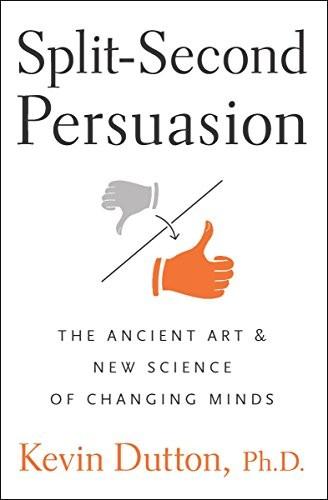
Split-Second Persuasion: The Ancient Art and New Science of Changing Minds
by
Kevin Dutton
Published 3 Feb 2011
Such cognitive flatulence – the irresistible tendency, when evaluating individual behaviour, to give precedence to internal, dispositional factors over external, situational ones (especially when that behaviour is our own and happens to be good, or is that of somebody else and happens to be bad) has a name in psychology: the fundamental attribution error. And with good reason. It is, as its name suggests, fundamental. 3Just how fundamental is revealed in a study conducted by Lee Ross, Professor of Social Psychology at Stanford University. Pairs of college students first drew lots to determine who would play the role of question master and who would be the contestant in a mock quiz game.
…
Even though the contestants had clearly overheard the researcher’s instructions to the effect that the questions should be drawn from an idiosyncratic pool of knowledge unknown to anyone else but the question master … and even though they clearly recalled drawing lots to decide who would be question master and who the contestant so that, in a parallel universe, the roles might so easily have been reversed … even though they had experienced first-hand – and were perfectly well aware of – the overwhelming situational odds that were against them … they still exhibited a flagrant disregard for the impact that these odds might have had on the way things turned out. The question master acted smart. So the correspondent inference had to be that he/she was smart. In fact the observers rated the question master as being more clued up than 80 per cent of all the other students at the university! The fundamental attribution error offers us a prime example of what Michael Mansfield was referring to when he talked about impressions and the power of narrative. Take a rape case, for instance. In the courtroom, rape often constitutes a crucible of persuasion ju-jitsu in which opposing lawyers lock horns not so much over the minds of the jury as over their hearts.
…
Or on his mental state at the time of the incident in question. (Perhaps he was drunk, or under the influence of drugs?) This, combined with an attendant emphasis on rape as a violent, as opposed to an erotic, act tells a simple, coherent ‘story’ – one which plays right into the hands of the fundamental attribution error. With their attention focused solely on the defendant, and forced to account for his actions, there is, so far as the jury is concerned, only one reasonable conclusion. They’ll presume that he is guilty. In contrast, however, the case for the defence will endeavour to focus the jury’s attention solely on the behaviour of the victim.

The Filter Bubble: What the Internet Is Hiding From You
by
Eli Pariser
Published 11 May 2011
The doppelgänger selves reflected in our media are a lot like, but not exactly, ourselves. And as we’ll see, there are some important things that are lost in the gap between the data and reality. To start with, Zuckerberg’s statement that we have “one identity” simply isn’t true. Psychologists have a name for this fallacy: fundamental attribution error. We tend to attribute peoples’ behavior to their inner traits and personality rather than to the situations they’re placed in. Even in situations where the context clearly plays a major role, we find it hard to separate how someone behaves from who she is. And to a striking degree, our characteristics are fluid.
…
Catalist categories, wide censorship Chait, Jon China Internet police in Pabst in CIA CineMatch cities architecture and design in Clarium click signals Clinton, Bill cloud Coca-Cola Village Amusement Park code and programmers coding, conceptual Cohen, Claudia Cohler, Matt Coleman, Gabriella collaborative filtering confirmation bias Conley, Dalton cookies Cortés, Hernán Coyne, Chris craigslist creativity and innovation credit reports Cropley, Arthur curators, see editors and curators curiosity cybernetics DARPA data laundering dating sites OkCupid day-parting De Castro, Henrique defaults democracy dialogue and design and architecture Dewey, John dialogue Digg DirectLife discovery disintermediation Dixon, Pam DNA Do Not Track list Dostoyevsky, Fyodor Downey, Tom Duncker, Karl Dyson, Esther EchoMetrix Eckles, Dean EdgeRank editors and curators Eliza e-mail constitutional protections and Gmail engineers Erowid Europe evolution Eysenck, Hans Facebook advertisements and EdgeRank and Everywhere Google and identity and Like button on local-maximum problem and lock-in and News Feeds on political advertising and political involvement and privacy policy of Twitter compared with facial recognition Fair Credit Reporting Act Fair Information Practices Fallows, James Farah, Martha FBI Flatow, Alfred Foer, Josh Foisie, Philip Founder’s Fund Foursquare France Fried, Charles Friedman, Patri Friedman, Tom friendly world syndrome Friendster From Counterculture to Cyberculture (Turner) fundamental attribution error Gawker geeks Gelernter, David Gellman, Robert genetic data Gerbner, George Gibson, William Gilbert, Dan Glass, Ira Gmail Google China and dashboard of digitized books and Docs “Don’t be evil” slogan of ethics and Facebook and facial recognition and Gmail Instant lock-in and News Oceana and PageRank Picasa political advertising and political involvement and Reader Research search algorithm of Translate Voice government Graber, Doris gun registration Habermas, Jurgen Hackers (Levy) hackers, hacking Hare, Brian Harris, Vincent Hastings, Reed Hauser, John Hayes, Gary Heiferman, Scott Heuer, Richards Hillis, Danny Hoekstra, Pete Huffington Post humanlike agents Hume, David IBM identity identity loops induction infomercials information gap Inglehart, Ron Institute intelligent agents Interactive Advertising Bureau (IAB) iPhone IQ Iraq i-traffic iTunes Iyengar, Shanto jet pilots Jiang Zemin Jobs, Steve Johnson, Steven Joy, Bill Kaczinski, Ted Kafka, Franz Kalathil, Shanthi Kane, Patrick Kantorovich, Aharon Katona, George Kayak Kazmaier, Dick Kekule, Friedrich Keller, Bill Kelly, Kevin Kennedy, John F.
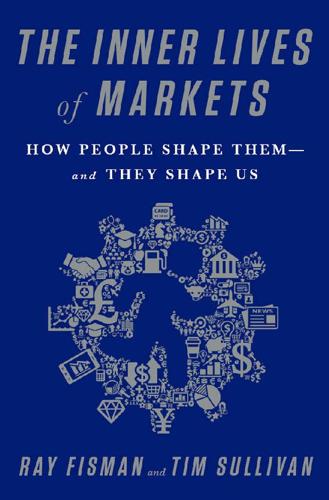
The Inner Lives of Markets: How People Shape Them—And They Shape Us
by
Tim Sullivan
Published 6 Jun 2016
If a waiter is curt we assume it’s because he’s ornery instead of observing that he’s dealing with the lunchtime rush (or responding to your own rudeness at his delay in taking your order). If a hedge fund manager earns 30 percent on returns, we assume she’s a genius, when in fact she almost certainly just got lucky.4 This failure in judgment was so central to how we judge others that Ross termed it the fundamental attribution error, and it serves as a potent illustration of the power of circumstance rather than individual volition in explaining the choices we make. A 2004 study by Ross and a pair of coauthors provides some intriguing insights into how “the market” affects how we behave. The study focused on a game called the prisoners’ dilemma, a staple of game theory, which presents the following quandary to a pair of criminals.
…
See mathematics models, 15, 24–29 of platforms, 107–112 reality-based, 35–37, 45, 49–51, 141 traditional, 110, 133 See also lemon markets theory; markets; platforms Edelman, Ben, 123–124 efficiency optimization, 85–86 eighteenth-century book markets, 90–91 Eisenstein, Don, 154 Elfenbein, Daniel, 73–75 empirical economics, 45 English auctions, 83, 100 equilibrium, existence of, 29, 31–34, 36–37, 40, 45, 76 Euler’s buckling equation, 141 exploding offers, 140 Federal Communications Commission (FCC), 102–103 feedback ratings, customer, 52, 74–75 Feeding America, 154 Findlay, Ronald, 85 first-price (live) auction, 84 first-price sealed-bid auction, 86–87, 99–100 Fisman, Ray Airbnb experience, 171–172 lesson on selling lemons, 59 study on eBay seller motivation for giving to charities, 73 fixed prices, auction versus, 96–97 food bank market system, 154–160 Foundations of Economic Analysis (Samuelson), 28 Fourcade, Marion, 20 fraternity rush, 140 free markets See markets frictions, market, 169–174 “Friday Car,” 46 Friedman, Milton, 72, 151 fundamental attribution error, 178 fundamentalists, market, 16–17 Future Shop (Snider and Ziporyn), 42 Gale, David, 136, 137–138 Gambetta, Diego, 68 game theory, 25–27, 136, 178–179 gang markings as signals, 61–62, 67–68 general equilibrium model, 31–34, 36–37, 40, 76 German POW camps, marketplaces at, 7–10, 13 Giving Works program (eBay for Charity), 73–75 global thermonuclear war, game of, 26 Goethe, Johann Wolfgang von, 89–92, 101 greed, in platforms, 128–129 Groves, Theodore, 93 guarantees, money-back, 69–71 Hall, Robert, 94 Hayek, Friedrich, 13 health markets, lemon problems and, 58–59 Healy, Kieran, 20 Heilbroner, Robert, 20, 21 Henry, John, 80–81, 87–89 Hermann and Dorothea (Goethe) royalties, 90–92, 101 Hernandez, Frances, 61–62 Herodotus, 81 Hicks, John, 34 hierarchy in POW camps, survival rates and, 10–13 Holderness, Clifford, 11–12 home contractors, 119–120 Hoshijima Susumu, 10–11 hotel lobbies, Airbnb vs., 172 Hoteling, Harold, 30 house exchange algorithm, 163–164 “How to Spot Fake Tiffany Jewelry” (yvonne9903), 52–53 human capital theory, 35 income, distribution of, 22 industrial organization, 117–118 inferior good, 180 information management system, 41–42 “Inside the School Assignment Maze” (article), 146 insights, market, 14–15 internet commerce, 41–43 lifestyle changes with creation of, 2–3 scams, 52–55 See also auctions invisible hand metaphor, 21, 33, 182 Japanese POW camps, 10–13, 175–177 Kakutani, Shizuo, 32 Das Kapital (Marx), 23 Keynes, John Maynard, 49–50 “Kidney Exchange” (Roth et al.), 164–165 kidneys sales, 160–161 transplant exchange algorithm, 162–166 King Rat (Clavell), 175–177 Klein, Joel, 143–144 labor markets, 48, 64–66 labor theory of value, 23 ladies night at bars, 123 laundry service platform, 112 lemon markets theory, 44–51, 58–59, 64, 112 “Let Them Eat Pollution” (article), 167 life insurance, 1840s, 153 Lincoln Elementary, 1–2 Little, I.
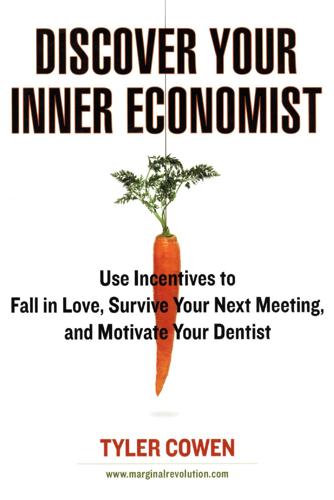
Tyler Cowen-Discover Your Inner Economist Use Incentives to Fall in Love, Survive Your Next Meeting, and Motivate Your Dentist-Plume (2008)
by
Unknown
Published 20 Sep 2008
But that is precisely the point. The Norwegians-and some of us-find this behavior entirely acceptable. But the ordinary resident of Chad, who works seven days a week, even when debilitated with malaria or dysentery, might find it unbelievable or horrifying. Psychologists write about the "Fundamental Attribution Error," or "correspondence bias," as it is sometimes called. The error is to assume that a single instance of individual behavior represents a deeply rooted personality trait. Instead, the behavior is often the result of situational influences. For instance, if someone cuts ahead of us in line, we tend to assume the interloper is a bad person.
…
See food Dirty Dishes Parable, 13-16,26 Divine Comedy (Dante), 166 driving ability, 114, 174 Dubai,148 economics central concept of, 2 deference to experts, 115-16 perceptions of, 5-8, 185-87 principles of good economics, 7-8 purpose, 4 terminology, 6 economists idealism of, 4 people posing as, 6 perceptions of, 185-87 Ecuador, 34-35 education and cultural consumption, 50-51 and happiness, 180 and musical tastes, 69 and performance, 24-25, 86, 122-23, 125 as Signal, 80, 82 Ekman, Paul, 105 employment and incentives, 33-34, 41-45, 45-46 meetings, 42-45 perceptions of, 136 signaling in, 82 and tardiness, 36 wages, 33-34, 40-41,148-50,151 Ender's Game (Card), 28 England, 147 Enron, 167 Enter the Dragon, 81 equality, 148-50 errands, 122 ethnic restaurants, 143-47, 147-57 European charities, 192 "Every Day" (Holly), 66 Evite.com,37 exercise, 31-32,118-20,136 expectations, 37 expected utility theory, 127 external motivations, 14 eastern European cuisines, 147 Eastwood, Clint, 73 eBay, 169 The Faerie Queene (Spenser), 65 Fagone, Jason, 172 Fair Play (Landsburg), 4, 91 cooperation, 19-21, 186 "correspondence bias," 21 corruption, 17, 18, 19,221 costs fixed costs, 176, 177, 181 signaling, 80, 81-82 sunk costs, 74-76 transaction costs, 176, 181 counter-signaling, 107-11 country and western music, 69, 70 cross-subsidies, 157, 159 crying bars, 183-84 culture, 47 -77 art, 51-61 (see also main entry for art) books and reading, 61-66 commitment to, 72-77 music, 66-72, 76 and scarcities, 48, 49-51 customer satisfaction, 56 240 I Index fair trade coffee, 206-7 families, 89-92, 215-16 Faulkner, William, 62 fear, 173-74 fixed costs, 176, 177, 181 Fogel, Robert, 164-65 food, 139-62 availability of, 165 choosing food, 140-41, 142-47, 150-51 choosing restaurants, 147-50 cooking at home, 141-42, 143, 145, 150-51, 159-62 ethnic food, 143-47, 147-57 food stalls, 154-57 ingredients, 144-45, 161 in Las Vegas, 157-59 speed eating contests, 172 See also restaurants France, 147 Frank, Mark, 105 Frank, Robert, 186 French cuisine, 149-50 French impressionists, 58 Freud, Sigmund, 118, 180 Friedman, David, 4-5 friends, 179 Fryer, Roland, 24-25 "Fundamental Attribution Error," 21 group productivity, 126-27 gUides of Morocco, 39-41 guilt, 74 gym memberships, 118-20 Haiti, 148-49, 197-98 Hall, Robert, 74 The Hammer, 125-26 handgun purchase plans, 207 Hanson, Robin, 89, 93-96 happiness, 179-81 Harbaugh, Rich, 109-10 hard-to-get strategy, 83-84 Hassan, Nur Malena, 85-86 hawker centers, 154-57 Hawking, Stephen, 65, 108 heavy metal music, 69, 71-72 Hidden Order: The Economics of Everyday Life (Friedman), 4 high school seniors, 114 Holly, Buddy, 66, 67 Holocaust, 199 Homer, Winslow, 59 homosexuality, 180 Horsemen of the Esophagus (Fagone), 172 How to Read a Book (Adler), 63 "Hungarian Rhapsody #2" (Liszt), 58 Hurricane Katrina, 89, 198, 200 Hyderabad, India, 216 gambling, 93, 157-58, 159 The Game: Penetrating the Secret Society of Pickup Artists (Strauss), 83 generosity, 179 Germany, 147, 150, 151 Getty Museum, 55 gifts, 81-82,185-86,210-14 girlfriends, imaginary, 165-66 Gladwell, Malcolm, 9, 199 Golding, William, 66 gospel music, 70 Grameen Bank Project, 215 Grandma Test, 7 Greece, ancient, 51, 117 greed, 167-69 identity, 67-69, 74, 76, 90 immigrants and immigration, 148, 149, 152,153 incentives, 11-29,31-46 and altruism, 187 applying parables, 22-29 and beliefs, 122 and capitalism, 46 Car Salesman Parable, 16, 22, 26, 45 as central concept of economics, 2 and context, 16-22 and control, 31-33, 44 and cooperation, 19-21 and cultural consumption, 48 and decision making, 10 Index difficulty of, 45-46 Dirty Dishes Parable, 13-16, 26 and eating good food, 139 external incentives, 32 intrinsic incentives, 45 and invitation responses, 37-38 and liberty, 4 and motivation, 2, 32, 33 Parking Tickets Parable, 16-22,33,45 penalties, 36-37 and performance, 38-41 and punctuality, 34-37 in relationships, 85, 178 for RSVPs, 37-38 self-management of, 51 in the workplace, 33-34, 41-45, 45-46 and world views, 117 India, 148, 187-92, 198 Indian cuisine, 145-48, 150, 154-55, 201-2 inequality, 148-50 infant mortality, 198-99 influenza scenario, 128-29 insiders, 44 insurance, 89-90, 134-36, 168 integrity, 180 interest, 52-53 Internet, 182 investments, 91, 92 invitations, 37-38 Iraq, 75 Jenkins, Jerrold, 65 Johnson, Samuel, 63 Journal of General Internal Medicine, 128 Joyce, James, 64 Jurassic Park, 58 Kahneman, Daniel, 179 Katrina, 89, 198, 200 Kellogg Foundation, 205 kidnappers and kidnapping, 167-68 Kiva.org, 217 Klein, Erica, 175 I 241 Kolkaata.
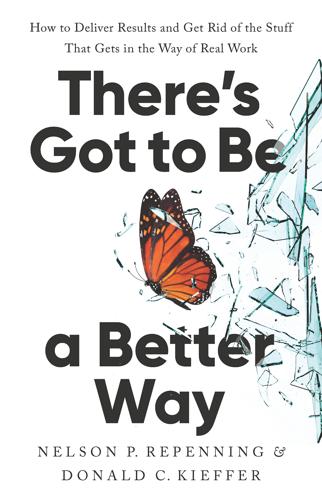
There's Got to Be a Better Way
by
Nelson P. Repenning
and
Donald C. Kieffer
Published 26 Aug 2025
So what happens when something bad happens and those workarounds and shortcuts are inevitably discovered as the cause? Unless senior leaders have a deep sense of the underlying work, they are likely to blame the people closest to the problem rather than the slow but debilitating slide into firefighting and inadequate capability. This bias is so prevalent that in psychology it’s known as the fundamental attribution error: the tendency to attribute a problem to the person who is closest to it, even if the person had nothing to do with it. We vividly remember a meeting in which one of Don’s Harley colleagues claimed that the project leads who managed through firefighting skipped steps because they enjoyed it, likening the feeling they got from departing from the process to sexual release (though the words he used were a bit different).
…
When there is a problem at the office or lab, however, we tend to forget that there is an underlying design to the work, no matter how informal or poorly documented it might be. When problems happen at work, we look for someone to blame, and usually it’s the person or people closest to the issue. This is the fundamental attribution error (mentioned in the previous chapter) at work. This cognitive error led Mike Morales to focus on training. It must be, he thought, something about the plant operators. He didn’t consider the possibility that a poorly designed work system might guarantee that people will engage in bad behavior, even when everyone has good intentions.
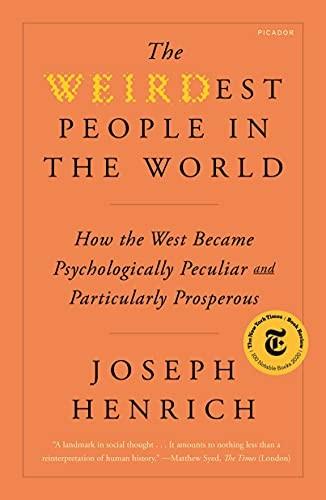
The WEIRDest People in the World: How the West Became Psychologically Peculiar and Particularly Prosperous
by
Joseph Henrich
Published 7 Sep 2020
If you’ve had a course in Social Psychology, you might recognize this as Cognitive Dissonance. The available evidence suggests that WEIRD people suffer more severely from Cognitive Dissonance and do a range of mental gymnastics to relieve their discomfort. Second, dispositional thinking also influences how we judge others. Psychologists label this phenomenon the Fundamental Attribution Error, though it’s clearly not that fundamental; it’s WEIRD. In general, WEIRD people are particularly biased to attribute actions or behavioral patterns to what’s “inside” others, relying on inferences about dispositional traits (e.g., he’s “lazy” or “untrustworthy”), personalities (she’s “introverted” or “conscientious”), and underlying beliefs or intentions (“what did he know and when did he know it?”).
…
Individuals increasingly sought consistency—to be “themselves”—across contexts and judged others negatively when they failed to show this consistency. Understanding this helps explain why WEIRD people are so much more likely than others to impute the causes of someone’s behavior to their personal dispositions over their contexts and relationships (the Fundamental Attribution Error), and why they are so uncomfortable with their own personal inconsistencies (Cognitive Dissonance). Reacting to this culturally constructed worldview, WEIRD people are forever seeking their “true selves” (good luck!). Thus, while they certainly exist across societies and back into history, dispositions in general, and personalities specifically, are just more important in WEIRD societies.46 THE ENDOWMENT EFFECT Traditionally, Hadza hunter-gatherers engaged in no commerce among themselves and little trade with other groups.
…
By contrast, many non-Protestants maintain that it’s not adultery if it remains only a mental state.38 Comparing American Protestants and Catholics reveals somewhat smaller differences, but it still appears that Protestants are more focused than Catholics on people’s internal states, beliefs, feelings, and dispositions. In one battery of studies, Cohen and his collaborators showed that Protestants are more inclined than Catholics to make the Fundamental Attribution Error—that tendency of WEIRD people to focus on others’ internal dispositions over obvious contextual factors when judging them. Cohen’s team makes the case, through a series of experiments, that this effect is driven by how Protestants think about the independence of the soul. Unlike Catholics, who have their Church, priests, sacraments (e.g., Confession and Penance), communities, and the prayers of their families and friends to help their souls enter the kingdom of heaven, Protestants stand alone, naked and solitary before a judgmental God.
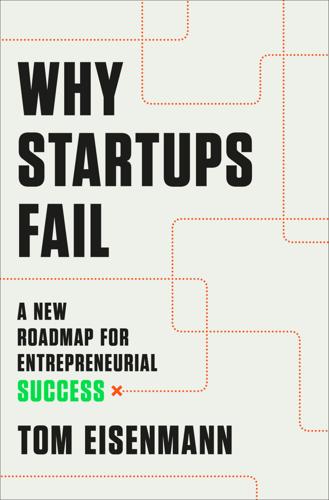
Why Startups Fail: A New Roadmap for Entrepreneurial Success
by
Tom Eisenmann
Published 29 Mar 2021
We shine a spotlight on one big reason for a calamity—say, a failed presidential bid (“neglect of a key swing state”) or a sports team’s late-season collapse (“the star pitcher’s torn hamstring”)—when the outcome is actually a result of multiple factors. Furthermore, we’re prone to make what psychologists call the fundamental attribution error. Research shows that when we observe others, our explanations for their behaviors tend to overemphasize dispositional factors—their personality type and the values we assume they have—while downplaying situational factors, such as social pressures or environmental circumstances. By contrast, when explaining our own behaviors, we tend to attribute good outcomes to dispositional factors—in particular, our skill and diligence—and bad outcomes to situational ones.
…
Humans are wired: Hans Hansen, “Fallacies,” The Stanford Encyclopedia of Philosophy (online; Summer 2020 ed.), discusses John Stuart Mill’s analysis of the single cause fallacy, which Mill categorizes as a fallacy of generalization of the type post hoc ergo propter hoc. Furthermore, we’re prone: Lee Ross, “The Intuitive Psychologist and His Shortcomings: Distortions in the Attribution Process,” Advances in Experimental Social Psychology 10 (1977): 173–220, coins the term “fundamental attribution error.” The BMW example is from Patrick Enright, “Road Rage Can Churn the Calmest of Hearts,” NBCNews.com, May 15, 2007. However, that meant: Dean Shepherd and Randall Tobias, eds., Entrepreneurial Failure (Northampton, MA: Edward Elgar, 2013), is a compilation of thirty-six academic articles on the causes and consequences of entrepreneurial failure.
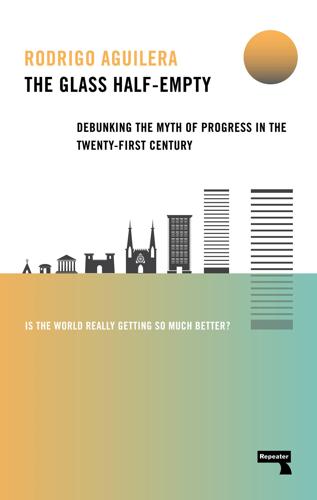
The Glass Half-Empty: Debunking the Myth of Progress in the Twenty-First Century
by
Rodrigo Aguilera
Published 10 Mar 2020
Like all optimism biases, the BJW is a psychological self-protection device, which is confirmed by numerous studies linking BJW with positive mental health outcomes such as higher subjective well-being and lower levels of depression.35 Unfortunately, it also results in grossly unempathetic attitudes towards human suffering and misfortune, even that which is demonstrably random: one of the first experiments on BJW by Lerner involved a female victim receiving electric shocks, after which she was rated less favorably by observers whenever her suffering could not be stopped or worse still, when she was seen as a martyr.36 This experiment, like many others, shows that BJW also strongly invokes the fundamental attribution error, another well-known cognitive bias whereby people tend to attribute personal characteristics as the main causal factors behind their behavior. As Lerner explained, if your outcomes in life can’t be explained by your behavior, then your dispositions will: The key to the relation between these studies and the rejection of a victim is the realization that there seem to be two senses in which people are considered to be de-serving.
…
The result of corporate hero worship is that we become primed to believe that corporate success is largely due to good leadership rather than due to situational factors like a booming economy, a surge in demand for the product, or technological improvements, to name a few. This is another example of the fundamental attribution error mentioned in Chapter Two. Perhaps it’s natural that we adorn the attributes of leadership to the business elite: we’d all like to think we’d make great CEOs even though the fact of the matter is most employees will never get near the top of their corporate hierarchies. Our fetishizing of leadership culture also helps to reinforce the notion that we can learn leadership from a book or from attending a seminar, even if what’s taught is common sense or downright puerile, as one unflattering description of many of these leadership exercises shows: The content of many of these leadership-development courses would not be out of place in a kindergarten or a New Age commune.
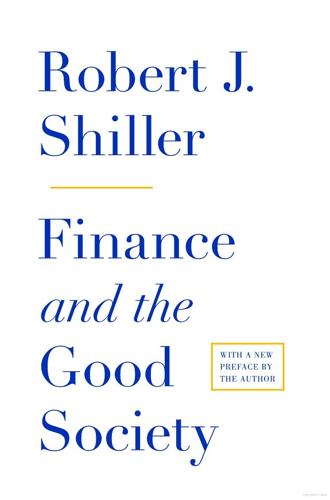
Finance and the Good Society
by
Robert J. Shiller
Published 1 Jan 2012
We tend to think that those in careers other than our own are fundamentally di erent kinds of people. Personality and character di erences are indeed somewhat associated with occupations. But this overly strong tendency to categorize people is related to what psychologists have dubbed “the fundamental attribution error.”1 It is a known fact that we tend to attribute the behavior of others to personality differences far more often than is warranted. We tend to think of the philosopher, artist, or poet as the polar opposite of the CEO, banker, or businessperson. But it is not really so. The idea that businesspeople have personalities fundamentally di erent from those in other walks of life is belied by the fact that people often combine or switch careers.
…
See bonds Forbes 400 list, 188, 194–95, 207, 256n7 foreign direct investment, 229 foreign exchange swaps, 75 forward markets, 75 foundations, 126, 165, 199, 207–8. See also philanthropists Franco-Prussian War, 221–22 Frank, Robert H., 192 Franklin, Benjamin, 104 Franz Ferdinand, Archduke, 183, 223 Freddie Mac (Federal Home Loan Mortgage Corporation), 53 French, Kenneth, 48 Freud, Sigmund, 129 Fried, Jesse, 24, 25 Friedman, Milton, 94, 95 fundamental attribution error, 135 futures markets, 4, 13, 61, 62, 75, 246n6 (Chapter 9) G20. See Group of Twenty Gale, David, 73 gambling, 140, 160–61, 168, 175. See also risk taking Gartner, John D., 173 Gartzke, Erik, 229 Gates, Bill, 9–10, 126, 199 Gates Foundation, 126 Gaviria, Hermilda, 237–38 GDP shares, 117 Geanakoplos, John, 156 Germany: accounting regulators, 101; corporate boards, 121, 249n4 (Chapter 17); DAX stock index, 171; hyperinflation, 146–47; Marshall Plan, 158; Nazi rule, 146, 156–57, 210; philanthropic giving, 199; World War I reparation debt, 156–57 gifts: from lobbyists, 90; tax deductions, 203–5; taxes on, 204–5.

Pedigree: How Elite Students Get Elite Jobs
by
Lauren A. Rivera
Published 3 May 2015
APPENDIX A. WHO IS ELITE? 1. See http://www.youtube.com/watch?v=ismksjp10q0&feature=youtube (accessed October 21, 2014). 2. See Bellah et al. 1985. 3. Although individualism has deep cultural and philosophical roots in the United States, it also has broader, psychological ones. The fundamental attribution error documents the general psychological tendency of people who live in individualistic cultures to explain things that are good that happen to them—such as getting into college or getting a promotion—as stemming from internal and stable characteristics, such as their drive or effort, rather than external factors such as luck, chance, or help.
…
See also interviewer evaluations of candidates fit, 116–17, 135–45, 270, 283–84, 329n14, 332n4; class background and, 137, 143–44, 242; definitions of, 136, 333n8; extracurricular activities and, 94–95, 136–38, 140–42, 242, 254, 277–78, 329n15, 330n17, 333n10; gender and, 143, 222, 230; impact on calibrations and callbacks of, 222, 230; impact on final hiring decisions of, 238–39, 242, 244–46; inequality and, 137, 143–44, 222, 230, 242; interviewer measures of, 140–42, 333n17, 337n11; vs. polish, 137, 332n5; ratings of importance of, 142–43; screening of résumés for, 94–95, 332n4 fit interviews, 337n11 fly outs, 331n8. See also super days full-time recruiting, 18 fundamental attribution error, 344n3 Garth, Bryant, 40–41, 327n28 gated playing field. See recruiting sources Gaztambide-Fernández, Rubén, 327n25 gender, 269, 281, 285; case interviews and, 227–30; champion roles and, 340n24, 340nn26–30; communication skills and, 224–25; cultural capital and, 342n5; equal opportunity legislation on, 275–76; in evaluation of prior employment, 108–9; in final hiring decisions, 247–51; fit and, 143, 222, 230; of Holt interviewers, 297t, 298; impact on calibrations and callbacks of, 222–24, 228–30; interviewer biases and, 212, 243; of interview sample, 291–96; math skills and, 189, 228–30, 255, 337n9; physical appearance and, 255; polish and, 224–27; stereotypes of competence and, 180–81, 224–27, 230–31, 243, 339nn8–9; work-life balance questions and, 205–6 gender diversity, 41–42, 207–9, 324n32; attrition rates and, 333n13; hiring decisions, 15, 139–40; HR professionals and, 331n11.
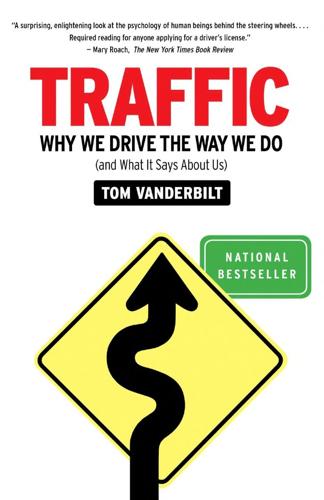
Traffic: Why We Drive the Way We Do (And What It Says About Us)
by
Tom Vanderbilt
Published 28 Jul 2008
Sometimes, says Katz, as part of this “moral drama,” and in an effort to create a “new meaning” for the encounter, we will try to find out something after the fact about the driver who wronged us (perhaps speeding up to see them), meanwhile running down a mental list of potential villains (e.g., women, men, teenagers, senior citizens, truck drivers, Democrats, Republicans, “idiots on cell phones,” or, if all else fails, simply “idiots”) before finding a suitable resolution to the drama. This seems an on-road version of what psychologists call the “fundamental attribution error,” a commonly observed way in which we ascribe the actions of others to who they are; in what is known as the “actor-observer effect,” meanwhile, we attribute our own actions to how we were forced to act in specific situations. Chances are you have never looked at yourself in the rearview mirror and thought, “Stupid #$%&!
…
On a larger scale, it might also help explain, more than actual national or civic chauvinism, why drivers the world around have their own favorite traffic targets: “The Albanians are terrible drivers,” say the Greeks. “The Dutch are the worst drivers,” say the Germans. It’s best not to get New Yorkers started about New Jersey drivers. We even seem to make the fundamental attribution error in the way we travel. When bicyclists violate a traffic law, research has showed it is because, in the eyes of drivers, they are reckless anarchists; drivers, meanwhile, are more likely to view the violation of a traffic law by another driver as somehow being required by the circumstances.
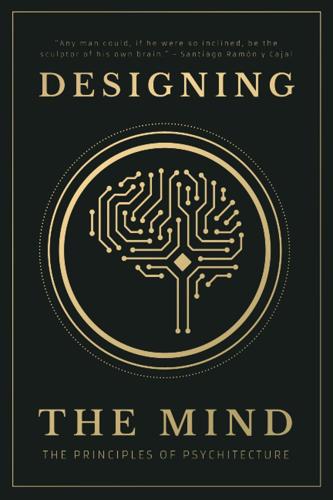
Designing the Mind: The Principles of Psychitecture
by
Designing The Mind
and
Ryan A Bush
Published 10 Jan 2021
Some of the most pervasive motivations behind our biases stem not from how we want to see the world, or how we want others to see us, but how we want to see ourselves. The desires related to our sense of identity can be the hardest to change.27 Our desires to be special and to maintain a positive view of ourselves result in the over-inflation of our own positive traits. The fundamental attribution error and self-serving bias cause us to attribute our own positive behaviors and successes, as well as the failure of others, to individual character. Correspondingly, we blame our negative behaviors and failures, and the successes of others, on luck and circumstance. Illusory superiority is the overestimation of one’s positive qualities and the underestimation of negative ones.27 Our desire to be in control of our lives creates the illusion of control.
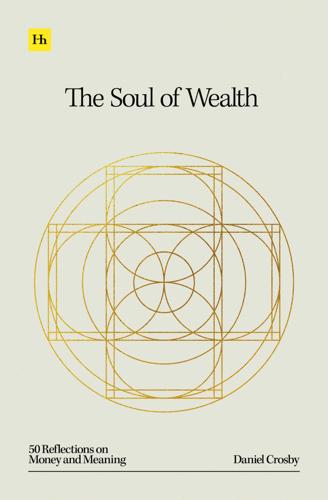
The Soul of Wealth
by
Daniel Crosby
Published 19 Sep 2024
The reality is both men and women, young and old, wealthy and indigent, all have issues matching spending and saving with what we profess to value. The bottom line is that the way we allocate our money reflects our true priorities. To slightly misquote Jay Z, “Men lie, women lie, budgets don’t lie.” The existence of this apparent behavioral flaw can be traced back to what psychologists refer to as the fundamental attribution error (FAE). It’s a cognitive bias that leads individuals to attribute another’s actions to internal factors while attributing their own behavior to external factors. Put another way, we take credit for success and blame others for our failures and flaws. The analogy I like to use is when you’re rushing home from work on a hectic commute.

The Buddha and the Badass: The Secret Spiritual Art of Succeeding at Work
by
Vishen Lakhiani
Published 14 Sep 2020
Don’t underestimate how much you matter or assume your managers won’t have time for your concern or question. And NEVER ever take on the disempowering beliefs of someone else. In fact, when you hear such a thing, correct them. Simply ask a question like: “Have you validated that belief with hard data science and study? Or is that a personal opinion clouded by Fundamental Attribution Error and one’s own childhood insecurities projecting a character trait onto someone else?” You get the idea ;-) The simple rule to live by is this: “If the belief makes me feel disempowered, unless it’s backed by empirical scientific data, and not just on someone’s opinion, I’m going to choose to ignore it and do what will empower me instead.”
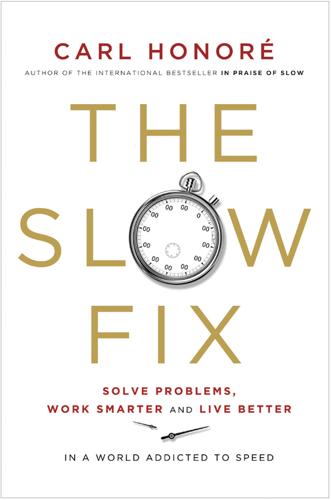
The Slow Fix: Solve Problems, Work Smarter, and Live Better in a World Addicted to Speed
by
Carl Honore
Published 29 Jan 2013
Awards, from the Nobel to the Pulitzer, from the Oscars to the MacArthur “genius grants,” usually go to single winners. Even in team sports we shower the superstars with prizes and praise. Study after study shows that when explaining events we tend to put too much emphasis on the role of individual agency and not enough on circumstances, a phenomenon dubbed the Fundamental Attribution Error. That is why we routinely assume CEOs have more power to shape the fortunes of their companies than all the research suggests. We certainly love the idea of the lone genius, the solo expert toiling away in solitude before finally shrieking “Eureka!” and emerging into the sunlight clutching a fully-formed solution to a problem.
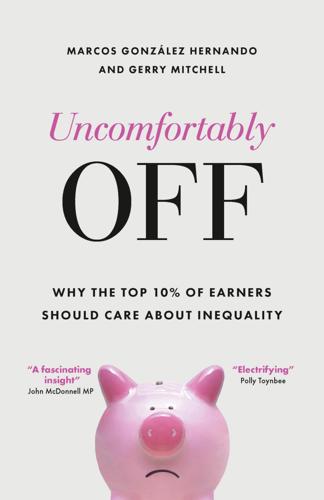
Uncomfortably Off: Why the Top 10% of Earners Should Care About Inequality
by
Marcos González Hernando
and
Gerry Mitchell
Published 23 May 2023
Moreover, when ‘bad’ things happen to us, we attribute it to misfortune, bad luck or beyond our control, but when we look at others – for instance, the unemployed or victims of crime – we tend to think first about what they did wrong. We apply to them an ‘individualising lens’ – the exact opposite of our approach to others’ successes and our own failures. This is known as the ‘fundamental attribution error’.26 In countries where levels of inequality are increasing, people become less aware and less concerned about the issue, which affects how and the extent to which people learn about inequality in the first place. As Danny Dorling points out, numeracy levels display an almost inverse perfect relationship to economic inequality: [I]n places where the rich take far more, young people find it hardest to understand why there can be such a large difference in income between the median and the mean.

Unhealthy societies: the afflictions of inequality
by
Richard G. Wilkinson
Published 19 Nov 1996
We read what we take to be the inner world from socially and institutionally motivated and structured external behaviour. However, in our conscious understanding we assume the process works the other way round. Indeed, the tendency—mentioned earlier—to see social institutions as if they were expressions of human nature seems to be supported by what has been called ‘the fundamental attribution error’. This is a systematic tendency noted by social psychologists for people to underestimate the impact of external situational factors and to overestimate the role of internal motivating dispositions in their perception of other people’s behaviour (Ross, L. 1978). In other words, instead of seeing the real constraints of the situation, behaviour is perceived as if it were simply an expression of an inbuilt disposition.
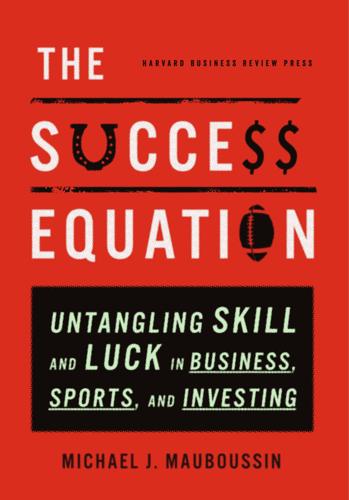
The Success Equation: Untangling Skill and Luck in Business, Sports, and Investing
by
Michael J. Mauboussin
Published 14 Jul 2012
Subjects who were told they were right seven out of the first eight tosses estimated their own ability to predict heads or tails as 5.7 (0 = very bad and 10 = pretty good), well above those who were told they were wrong at the beginning. In this case, initial success with random events persuaded those people to think that they had some sort of skill at predicting the way a coin would land.29 Likewise, when we observe the success of others, we fall victim to the fundamental attribution error. In this context, the error is the tendency to base our explanation of what happens on an individual's skill rather than the situation. Once we create a narrative that explains success, we tend to suppress other explanations and see what happened as inevitable. For example, while researchers have come to different conclusions about the influence CEOs have on their companies, few would deny that the perception of their importance is exaggerated.
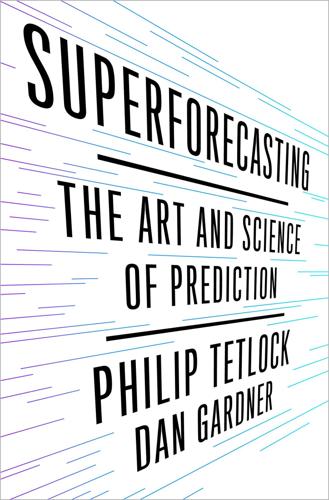
Superforecasting: The Art and Science of Prediction
by
Philip Tetlock
and
Dan Gardner
Published 14 Sep 2015
But imagine you see someone who snaps, shouts, then apologizes and explains that he has insomnia and hasn’t slept properly in days. What does that incident say about that person? Logically, it should say about him what it said about you, but decades of research suggest that’s not the lesson you will draw. You will think this person is a jerk. Psychologists call this the fundamental attribution error. We are fully aware that situational factors—like insomnia—can influence our own behavior, and we rightly attribute our behavior to those factors, but we routinely don’t make the same allowance for others and instead assume that their behavior reflects who they are. Why did that guy act like a jerk?
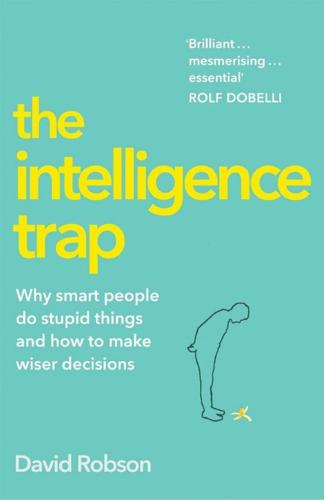
The Intelligence Trap: Revolutionise Your Thinking and Make Wiser Decisions
by
David Robson
Published 7 Mar 2019
‘Without humility, you are unable to learn,’ Laszlo Bock, the senior vice president of people operations for Google, told the New York Times.47 ‘Successful bright people rarely experience failure, and so they don’t learn how to learn from that failure,’ he added. ‘They, instead, commit the fundamental attribution error, which is if something good happens, it’s because I’m a genius. If something bad happens, it’s because someone’s an idiot or I didn’t get the resources or the market moved . . . What we’ve seen is that the people who are the most successful here, who we want to hire, will have a fierce position.
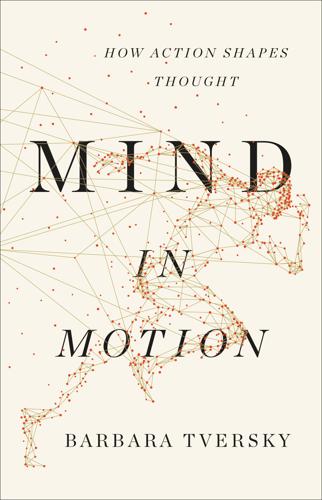
Mind in Motion: How Action Shapes Thought
by
Barbara Tversky
Published 20 May 2019
People are faster to read words denoting certainty, like sure, when they are located close in a drawn scene and faster to read words expressing uncertainty, like maybe, when the words are placed at a distance in a scene. When they imagine the distant future, people judge that others and they themselves will be more consistent than when they imagine the near future. This implies that we are more likely to get out of ourselves when we take a distant perspective on ourselves. According to the fundamental attribution error, we see our own behavior as more dependent on external influences, so more variable and uncertain, but we see others’ behavior is more dependent on traits, so more consistent and predictable. Distancing ourselves from ourselves makes us see our own selves like selves of others. People use more abstract words to describe their distant past than their close past.
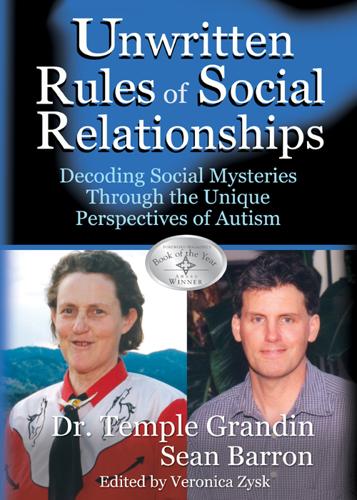
The Unwritten Rules of Social Relationships: Decoding Social Mysteries Through the Unique Perspectives of Autism
by
Temple Grandin
and
Sean Barron
Published 30 Sep 2012
If you allow your rage to rule you, you will become your own enemy. Not only that, but you will be stooping to the level of the people you dislike most. Lashing out at people in a rage is just as mean and nasty as any of the unfair things people have done to you. It is also very important to understand the “fundamental attribution error.” This is the tendency of all humans to overestimate how much people’s behavior comes from their basic personality and to underestimate how much of people’s behavior comes from situational influences. For example, if I accidentally cut someone off and they flip me the bird, I think, “Wow, that guy is a total jerk!”

Geek Heresy: Rescuing Social Change From the Cult of Technology
by
Kentaro Toyama
Published 25 May 2015
Other social sciences have similar debates. Psychology has its person-situation debate, which pits internal personality against external situation as determinants of behavior. Sociologists talk about social structures versus individual agency. And in the public sphere, it’s become fashionable to note the “fundamental attribution error,” which says that behavior is more often a result of circumstances than of some underlying stable personality. It’s obvious, though, that behavior is caused by a complex interaction of both internal states and external situations. Which matters more is difficult to answer in a general way.
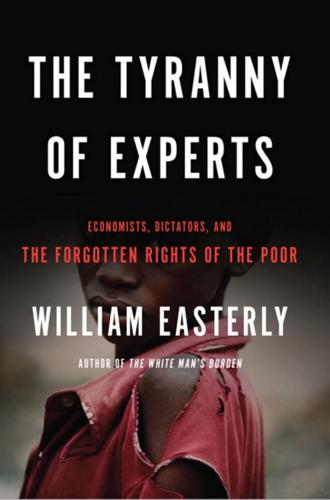
The Tyranny of Experts: Economists, Dictators, and the Forgotten Rights of the Poor
by
William Easterly
Published 4 Mar 2014
But let’s first review some more of the psychological biases that also determine which explanations we prefer. THE WISH FOR HEROES This chapter is starting to look like one of those action movies in which the hero slays one monster only to find it replaced by a more formidable one, over and over. An even more potent bias in favor of stories of benevolent autocrats is called the “fundamental attribution error.” Demonstrated in many experiments, this error refers to the tendency of people to attribute an outcome too much to individual personality, intentions, and skill and not enough to external factors. The typical experiment takes some volunteers (known as test subjects) and shows them a situation and asks them to interpret it.
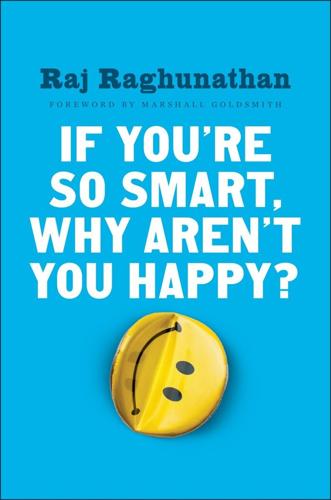
If You're So Smart, Why Aren't You Happy?
by
Raj Raghunathan
Published 25 Apr 2016
five trustworthy behaviors: J. Gottman, and N. Silver, The Seven Principles for Making Marriage Work: A Practical Guide from the Country’s Foremost Relationship Expert (New York: Harmony, 2015). found in a set of studies: R. Raghunathan, and E. J. Han, “Default Social Cynicism: Asymmetries in the Fundamental Attribution Error,” working paper, University of Texas at Austin, 2014. Interpersonal Trust Scale: The items in the scale have been adapted from J. Rotter, “A New Scale for the Measurement of Interpersonal Trust,” Journal of Personality (1967). Smart Trust: Covey, Link, and Merrill, Smart Trust.
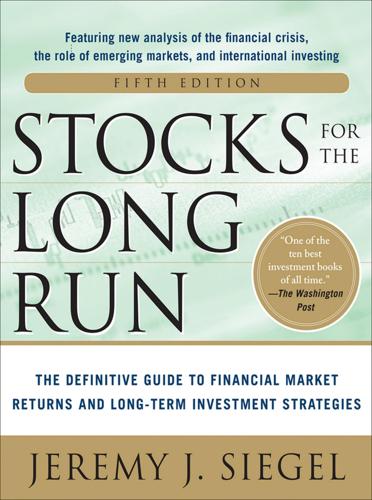
Stocks for the Long Run 5/E: the Definitive Guide to Financial Market Returns & Long-Term Investment Strategies
by
Jeremy Siegel
Published 7 Jan 2014
Lichtenstein, “Knowing with Uncertainty: The Appropriateness of Extreme Confidence,” Journal of Experimental Psychology: Human Perception and Performance, vol. 3 (1977), pp. 552-564. 13. A. H. Hastorf, D. J. Schneider, and J. Polefka, Person Perception, Reading, MA: Addison-Wesley, 1970. This is also called the Fundamental Attribution Error. 14. For reference to a model that incorporates success as a source of overconfidence, see Simon Gervais and Terrance Odean, “Learning to Be Overconfident,” Review of Financial Studies, vol. 14, no. 1 (2001), pp. 1-27. 15. For references to models that incorporate the representative heuristic as a source of overconfidence, see either N.

The 9/11 Wars
by
Jason Burke
Published 1 Sep 2011
The bombing of the al-Askariya shrine, to take one example, was thus described as ‘another indication of the worldwide jihadist offensive against the West’, an odd description of an attack on a Muslim holy place by other Muslims.70 The problem with this highly ideological vision of the Long War was that it perpetuated one of the fundamental attribution errors that had underpinned the conceptualization and execution of the entire ‘Global War on Terrorism’. Men like Abizaid within the military may have instinctively sensed that for their soldiers facing complex situations involving militancy on the ground such generalized responses were inadequate.

Bourgeois Dignity: Why Economics Can't Explain the Modern World
by
Deirdre N. McCloskey
Published 15 Nov 2011
The rhetoric of men’s sexual dominance over women (“But she wants it”; “I am a man, and women are made for my lusts”) or the rhetoric of a business civilization (“That government is best that governs least”) do explain such things, and both of the rhetorics can and have changed. Not easily or often. But sometimes surprisingly quickly. Attributing to deeper culture or personality a behavior that in fact arises from present rhetoric or circumstances is called by social psychologists the “fundamental attribution error.”1 Seemingly profound and permanent differences in cultural dispositions to which we attribute influence on behavior can disappear in a generation or two. The grandchildren of Hmong immigrants to the United States differ in many of their values-in-action only a little from the grandchildren of British immigrants.

Engineering Security
by
Peter Gutmann
, Lyn Abramson and Lauren Alloy, Journal of Experimental Psychology (General), Vol.108, No.4 (December 1979), p.441. 220 Psychology [321] “Depression and pessimism for the future: biased use of statistically relevant information in predictions for self versus others”, Anthony Ahrens and Lauren Alloy, Journal of Personality and Social Psychology, Vol.52, No.2 (February 1987), p.366. [322] “Mood and Persuasion: A Cognitive Response Analysis”, Herbert Bless, Gerd Bohner, Norbert Schwarz and Fritz Strack, Personality and Social Psychology Bulletin, Vol.16, No.2 (June 1990), p.331. [323] “Happy and Mindless, But Sad and Smart? The Impact of Affective States on Analytic Reasoning”, Norbert Schwarz and Herbert Bless, in “Emotion and Social Judgements”, Routledge, 1991, p.55. [324] “On being happy and mistaken: mood effects on the fundamental attribution error”, Joe Forgas, Journal of Personality and Social Psychology, Vol.75, No.2 (August 1998), p.318. [325] “Mood in foreign exchange trading: Cognitive processes and performance”, Kevin Au, Forrest Chan, Denis Wang and Ilan Vertinsky, Organizational Behavior and Human Decision Processes, Vol.91, No.2 (July 2003), p.322. [326] “Flawed Self-Assessment: Implications for Health, Education, and the Workplace”, David Dunning, Chip Heath and Jerry Suls, Psychological Science in the Public Interest, Vol.5, No.3 (December 2004), p.69. [327] “The Effect of Mood on Detection of Covariation”, Julia Braverman, Personality and Social Psychology Bulletin, Vol.31, No.11 (November 2005), p.1487. [328] “The sad truth about depressive realism”, Lorraine Allan, Shepard Siegel and Samuel Hannah, Quarterly Journal of Experimental Psychology, Vol.60, No.3 (March 2007), p.482. [329] “Effects of mood and emotion on juror processing and judgments”, Carolyn Semmler and Neil Brewer, Behavioral Sciences & the Law, Vol.20, No.4 (July/August 2002), p.423. [330] “Emotional evidence and jurors’ judgments: the promise of neuroscience for informing psychology and law”, Jessica Salerno and Bette Bottoms, Behavioral Sciences & the Law, Vol.27, No.2 (March/April 2009), p.273. [331] “Myers Briggs Type Indicator personality profiles in unipolar depressed patients”, David Janowsky, Elliot Hong, Shirley Morter and Laura Howe, World Journal of Biological Psychiatry, Vol.3, No.4 (October 2002), p.207. [332] “Psychological Disorder in Adolescents and Adults with Asperger Syndrome”, Digby Tantam, Autism, Vol.4, No.1 (March 2000), p.47. [333] “Psychiatric Comorbidity in Young Adults with a Clinical Diagnosis of Asperger Syndrome”, Tove Lugnegard, Maria Hallerback and Christopher Gillberg, Research in Developmental Disabilities: A Multidisciplinary Journal, Vol.32, No.5 (September/October 2011), p.1910. [334] “Illusion and Well-Being: A Social Psychological Perspective on Mental Health”, Shelley Taylor and Jonathon Brown, Psychological Bulletin, Vol.103, No.2 (March 1988), p.193. [335] “The Folly of Fools”, Robert Trivers, Basic Books, 2011. [336] “Lob der Halbwahrheit: Warum wir so manches verschweigen“, David Nyberg, Junius Verlag, 1994. [337] “The Optimism Bias: A Tour of the Irrationally Positive Brain”, Tali Sharot, Pantheon Books, 2011. [338] “Anterior Cingulate Cortex, Error Detection, and the Online Monitoring of Performance”, Cameron Carter, Todd Braver, Deanna Barch, Matthew Botvinick, Douglas Noll and Jonathan Cohen, Science, Vol.280, No.5364 (1 May 1998), p.747. [339] “The Contribution of the Anterior Cingulate Cortex to Executive Processes in Cognition”, Cameron Carter, Matthew Botvinick and Jonathan Cohen, Reviews in the Neurosciences, Vol.10, No.1 (1999), p.49. [340] “Learned Predictions of Error Likelihood in the Anterior Cingulate Cortex”, Joshua Brown and Todd Braver, Science, Vol.307, No.5712 (18 February 2005), p.1118. [341] “Cognitive Processes in Depression”, Lauren Alloy, Guilford Press, 1988.
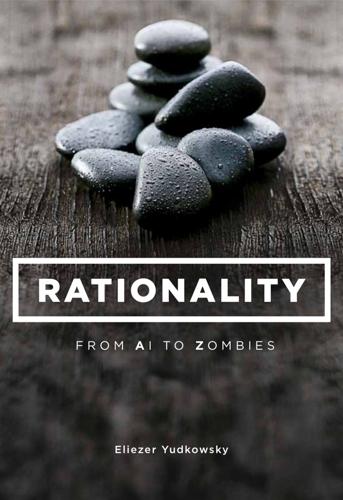
Rationality: From AI to Zombies
by
Eliezer Yudkowsky
Published 11 Mar 2015
Unless the “someone” who kicks the machine is us—in which case we’re behaving perfectly normally, given our situations; surely anyone else would do the same. Indeed, we overestimate how likely others are to respond the same way we do—the “false consensus effect.” Drinking students considerably overestimate the fraction of fellow students who drink, but nondrinkers considerably underestimate the fraction. The “fundamental attribution error” refers to our tendency to overattribute others’ behaviors to their dispositions, while reversing this tendency for ourselves. To understand why people act the way they do, we must first realize that everyone sees themselves as behaving normally. Don’t ask what strange, mutant disposition they were born with, which directly corresponds to their surface behavior.